In Her* Words
In August 2021, I was invited to Hamburg to join a small group of artists in the development of a philosphical debate, art installation and performance on the history of feminism and sisterhood as political practice – based on the historical documents and experiences of women’s rights movements and feminist philosophers (mainly) in Italy between 1966 and 1986, gathered in the book called “Sexual Difference: a Theory of Social-Symbolic Practice” (in German: Wie weibliche Freiheit entsteht. Eine neue politische Praxis” by the Libreria delle donne di Milano.
I was invited by my dear friend and previous co-creator of performances on gender Ute Rauwald who is both a director and actress in Hamburg and a professor of acting at the University of Applied Arts in Graz. Together with her sister, the artist Dagmar Rauwald, and Hamburg-based actress Vivian Mahler, as well as a few art and acting students, we spent one intense week preparing a series of performances as part of the Hamburg Art Off – Cultural Summer Programme.
Do we already live in a post-feminist culture?
The four of us spent the first days reading and discussing parts of the book we found especially important to distill key topics and text passages that we wanted to include in our performance – both in the form of a sound installation hidden inside a tree created by Harald Kainer, as well as philosophical debate prompts and discussions with the audience. Some of the key themes we began working and engaging with were
feminism vs. genealogy (i.e. should women refer to men or other women to find their role and place in society and the world) and connected to it questions of what to take into the future from the past
the role and value of private space and personal money in the lives of women, echoing Virginia Woolf’s “every woman must have money and a room of her own”
equality before the law – when no two women are equal/the same - can a whole gender be represented as a homogenous group before the (male-dominated) law
as well as the abortion law and history around it
Our philosophical and historical debates and explorations were complemented by an art installation of utopian tents and structures that we created together with the two fine artists Priska and Sharon Engelhardt.
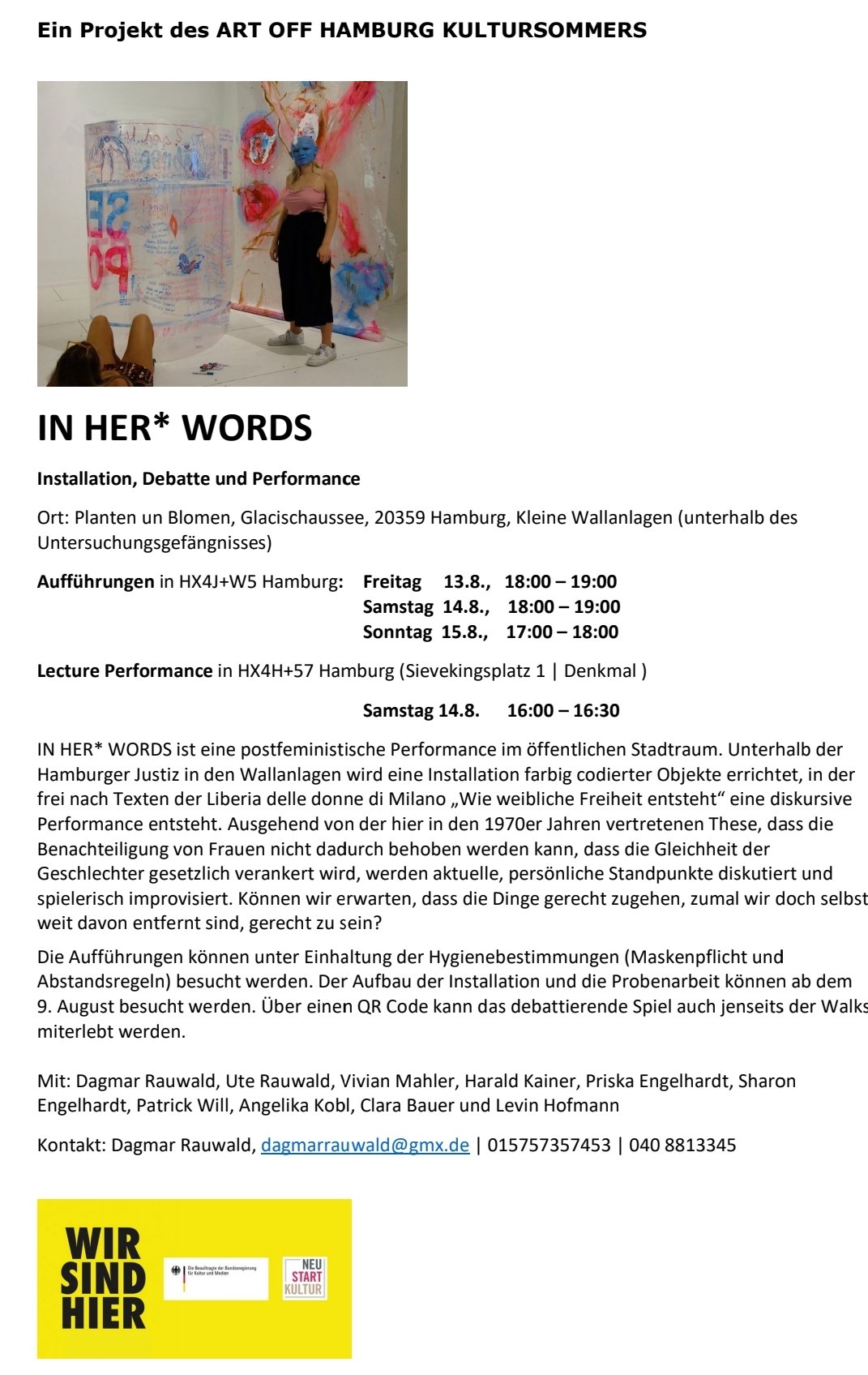
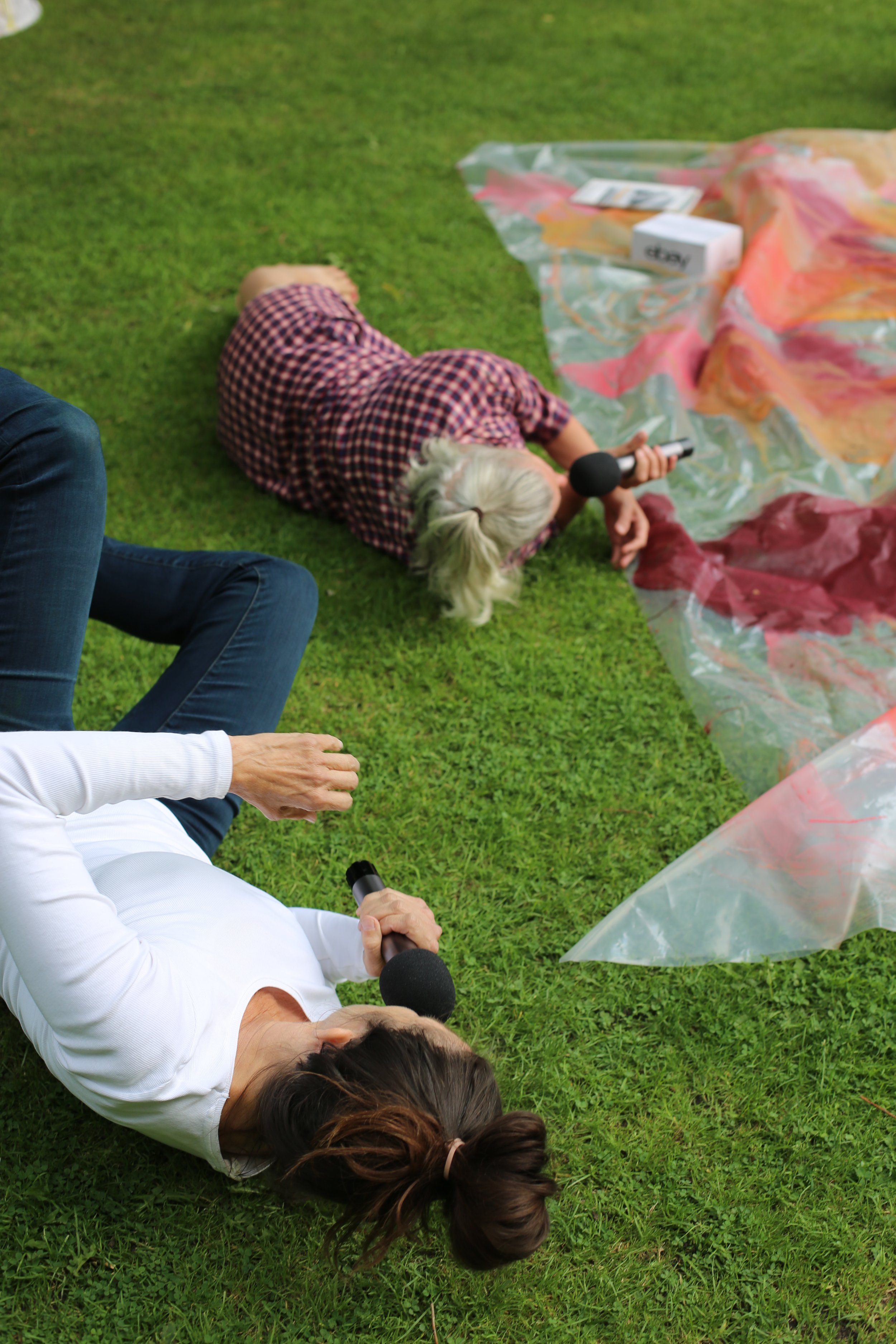
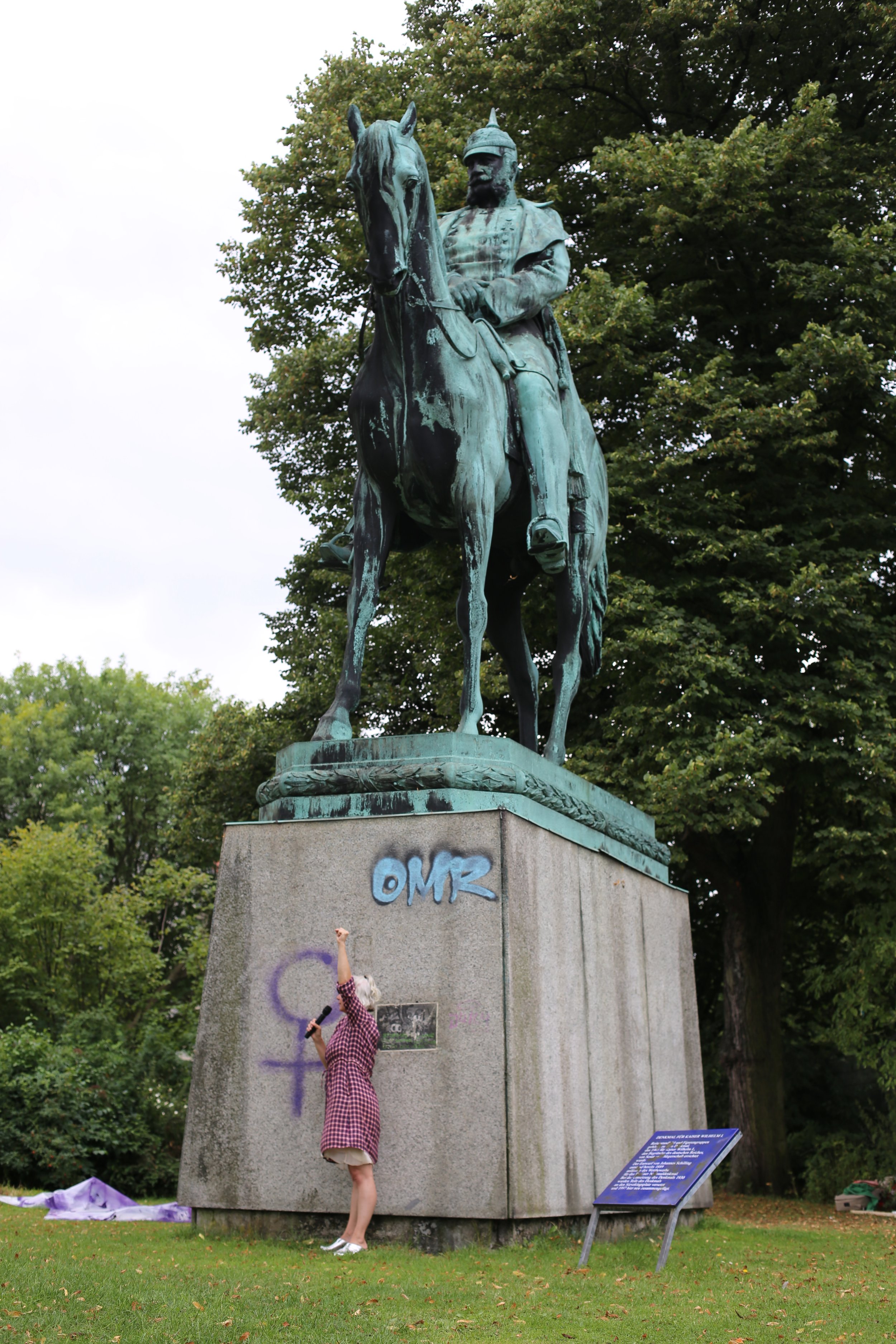
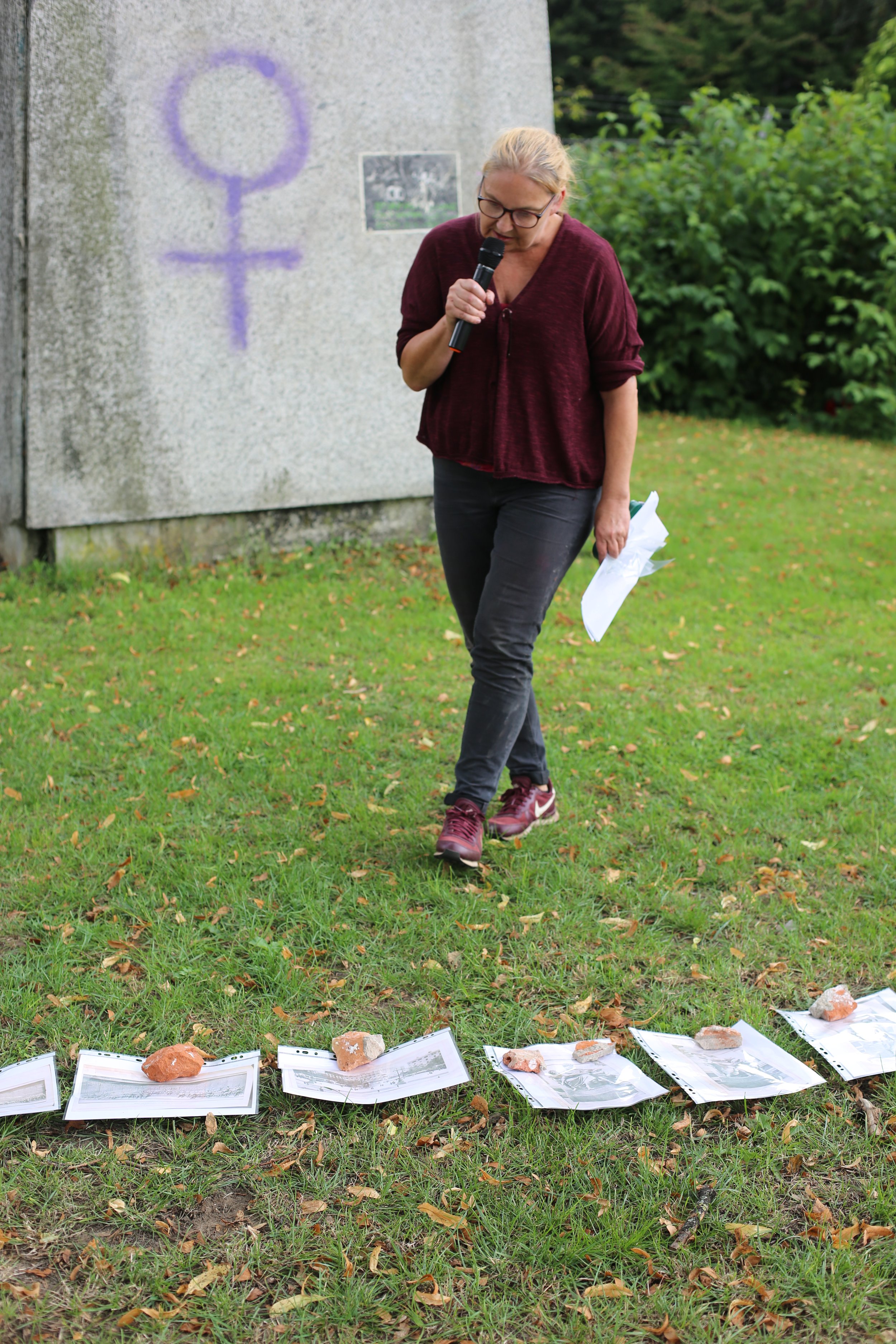
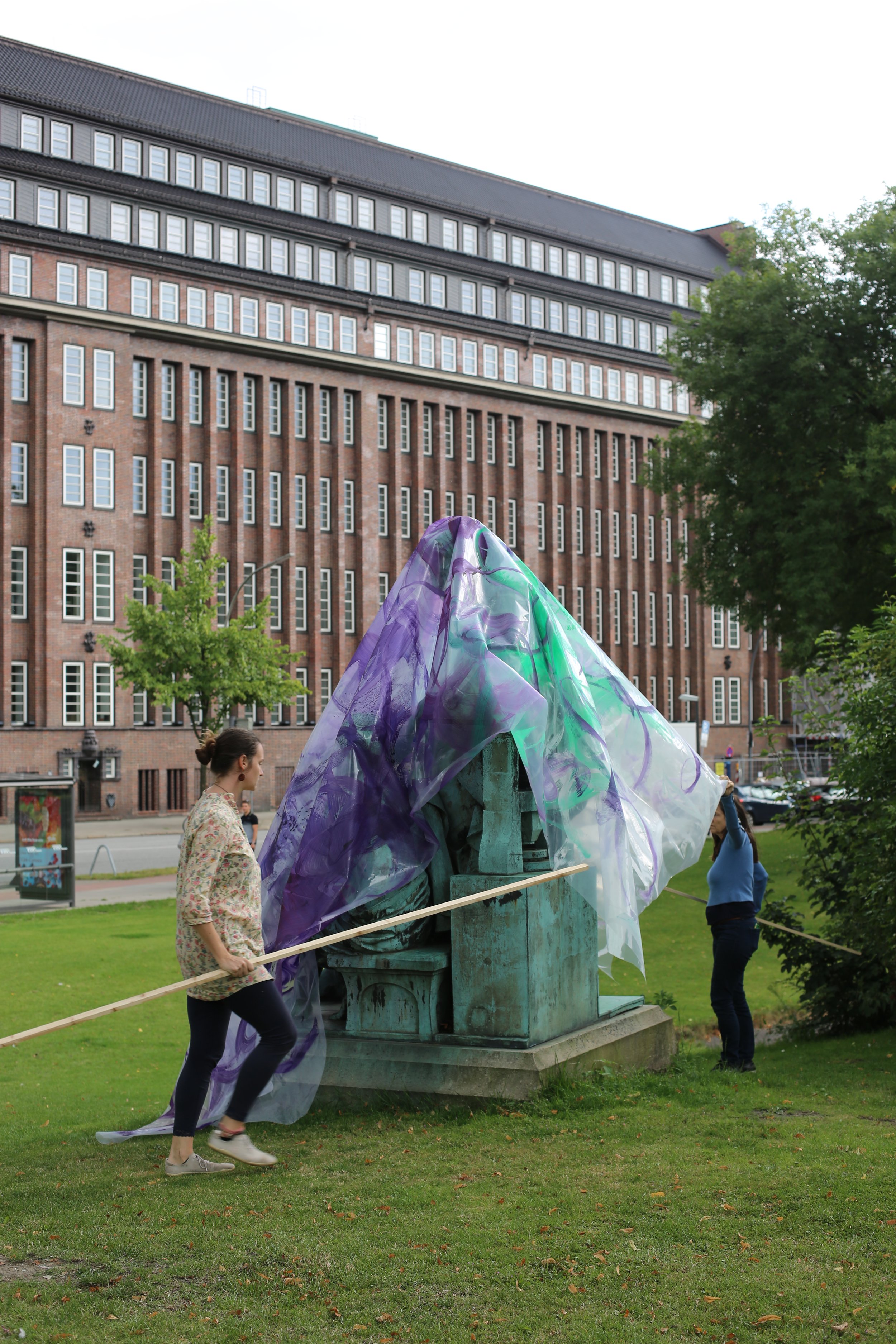
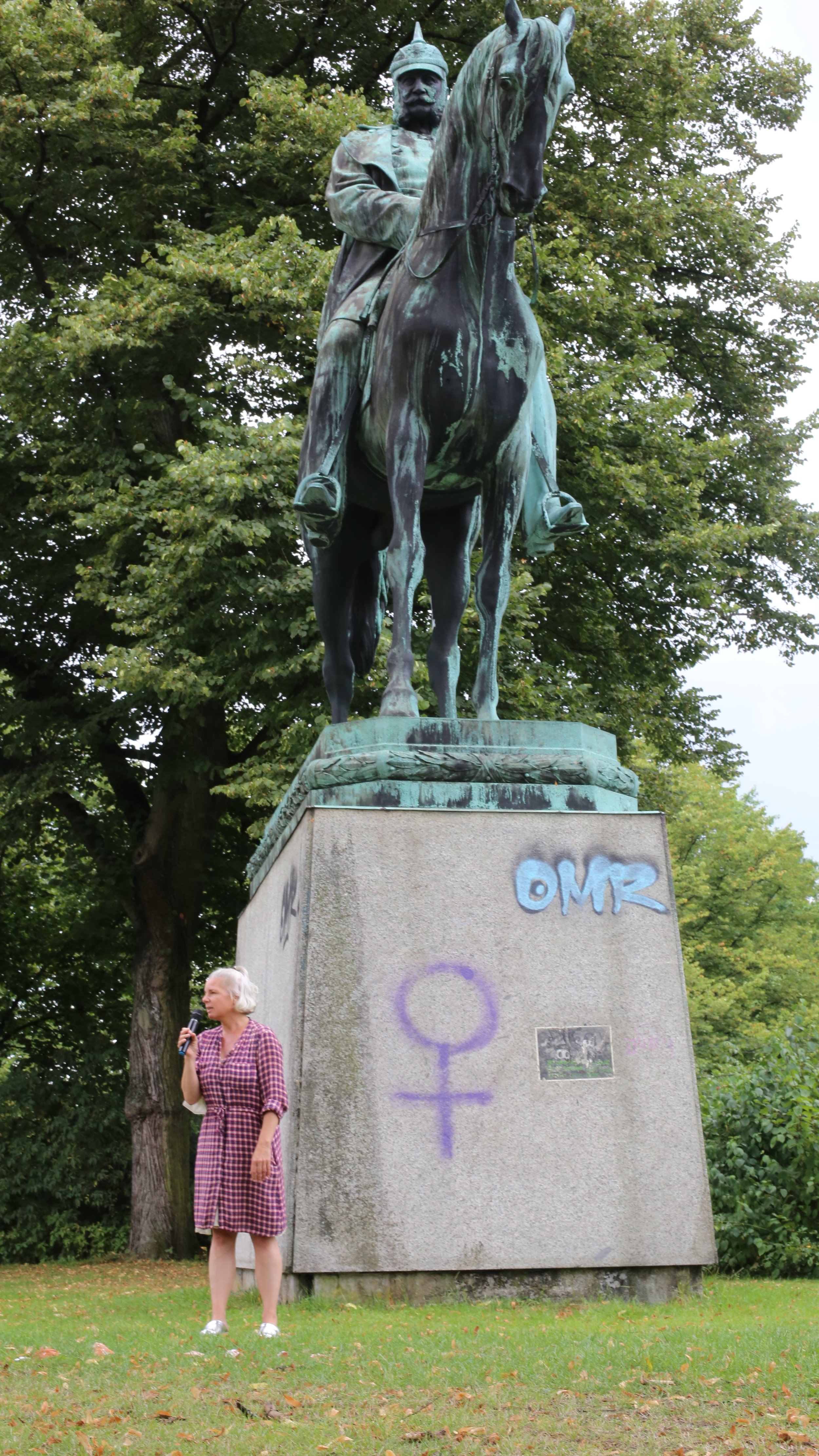
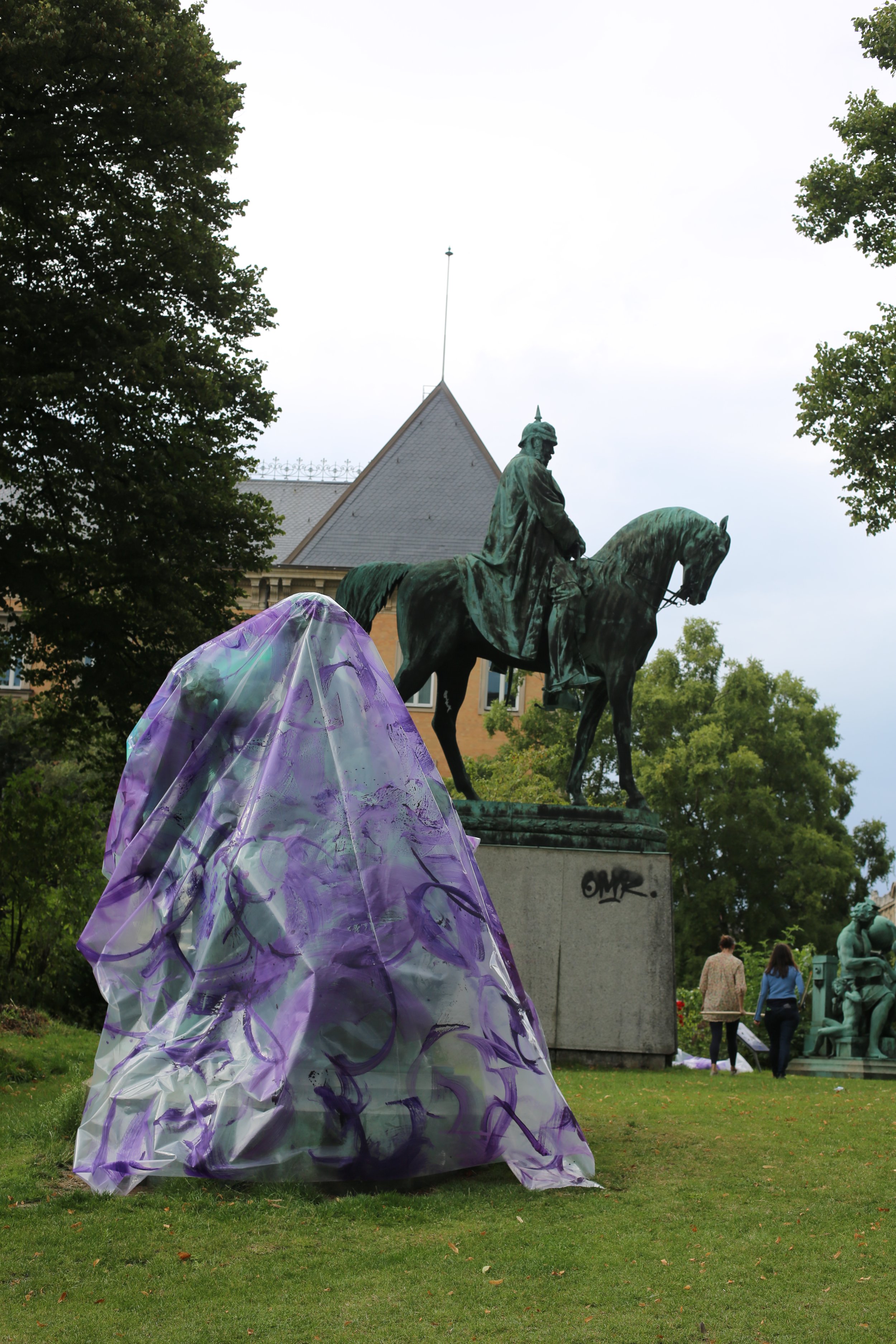
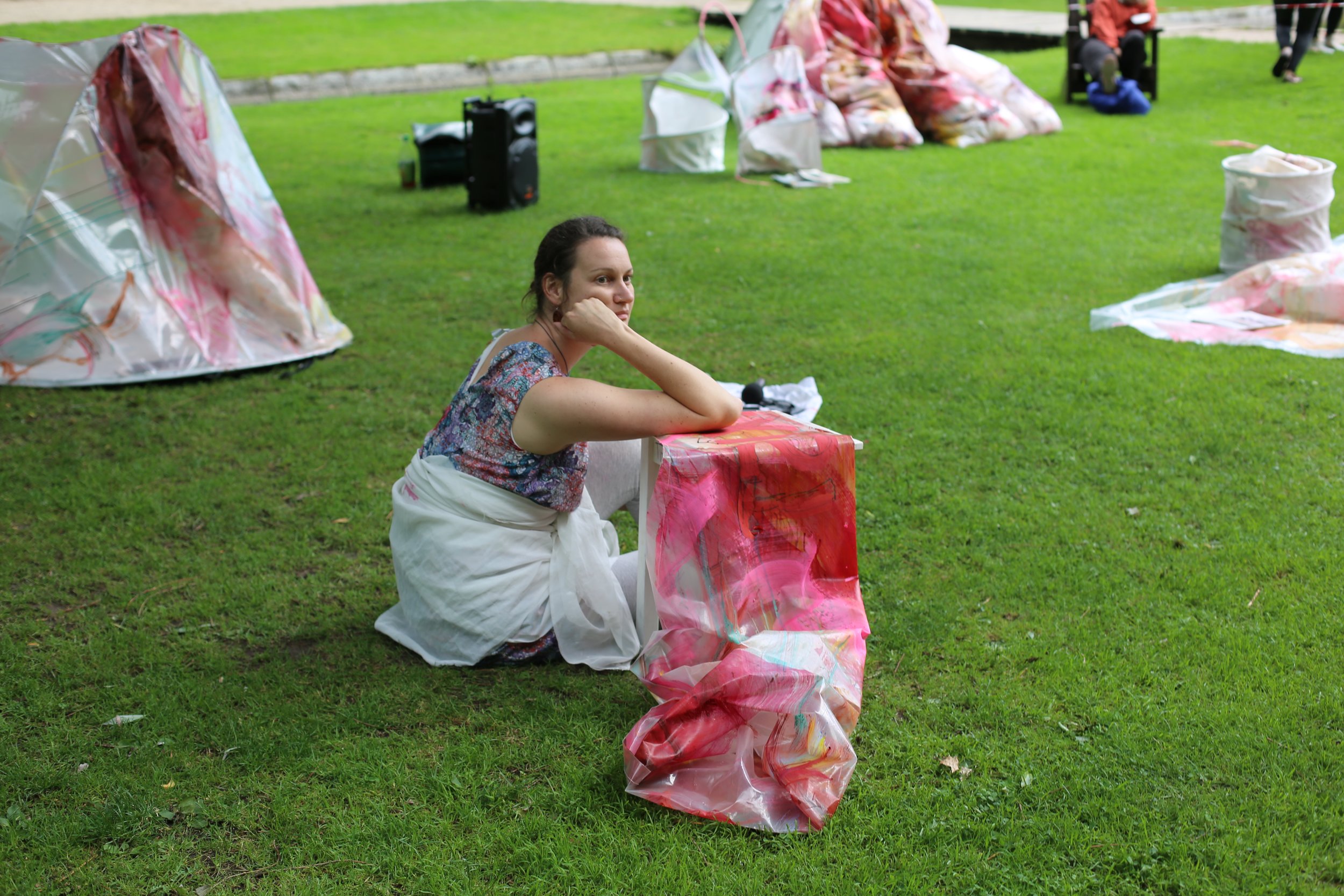
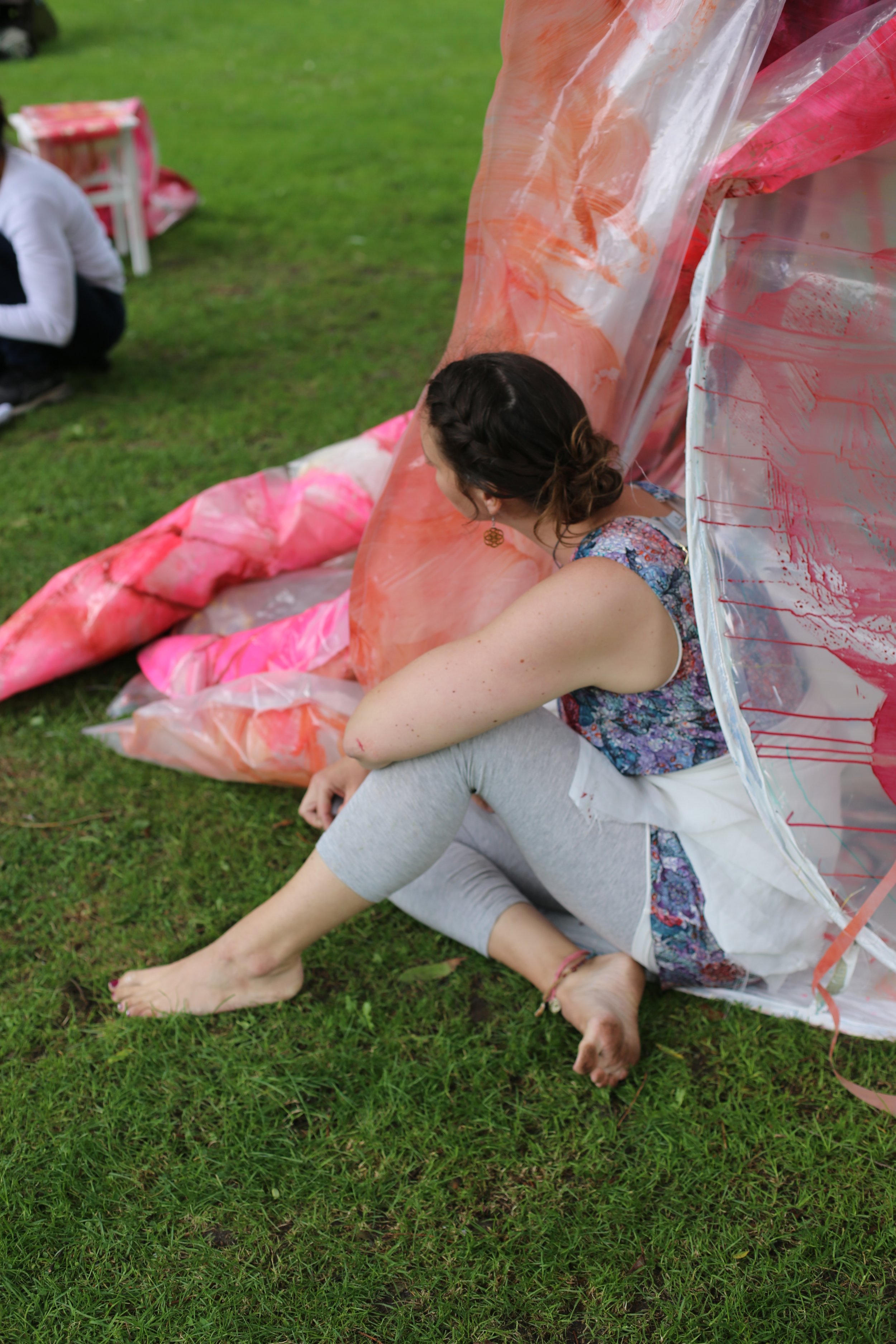
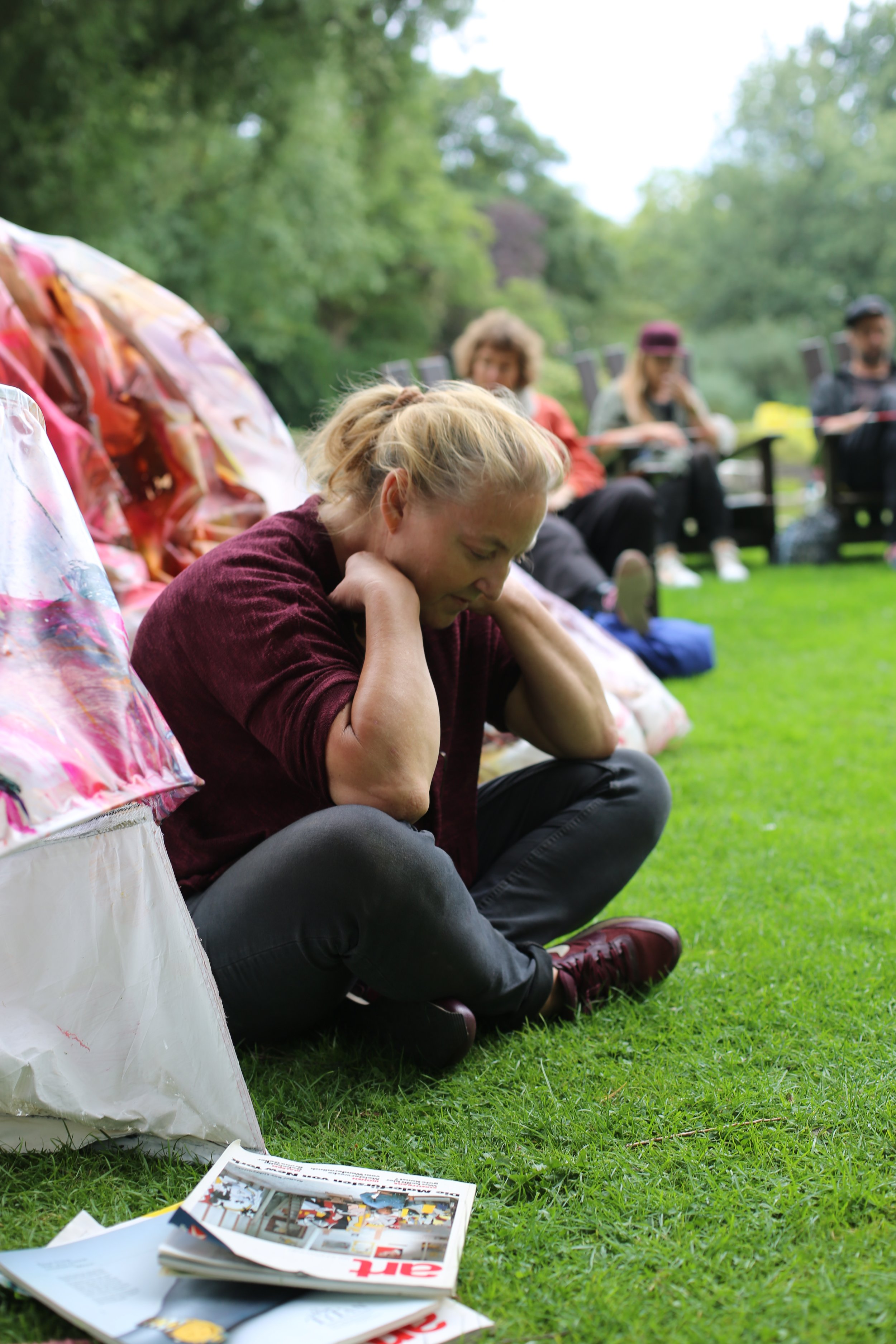
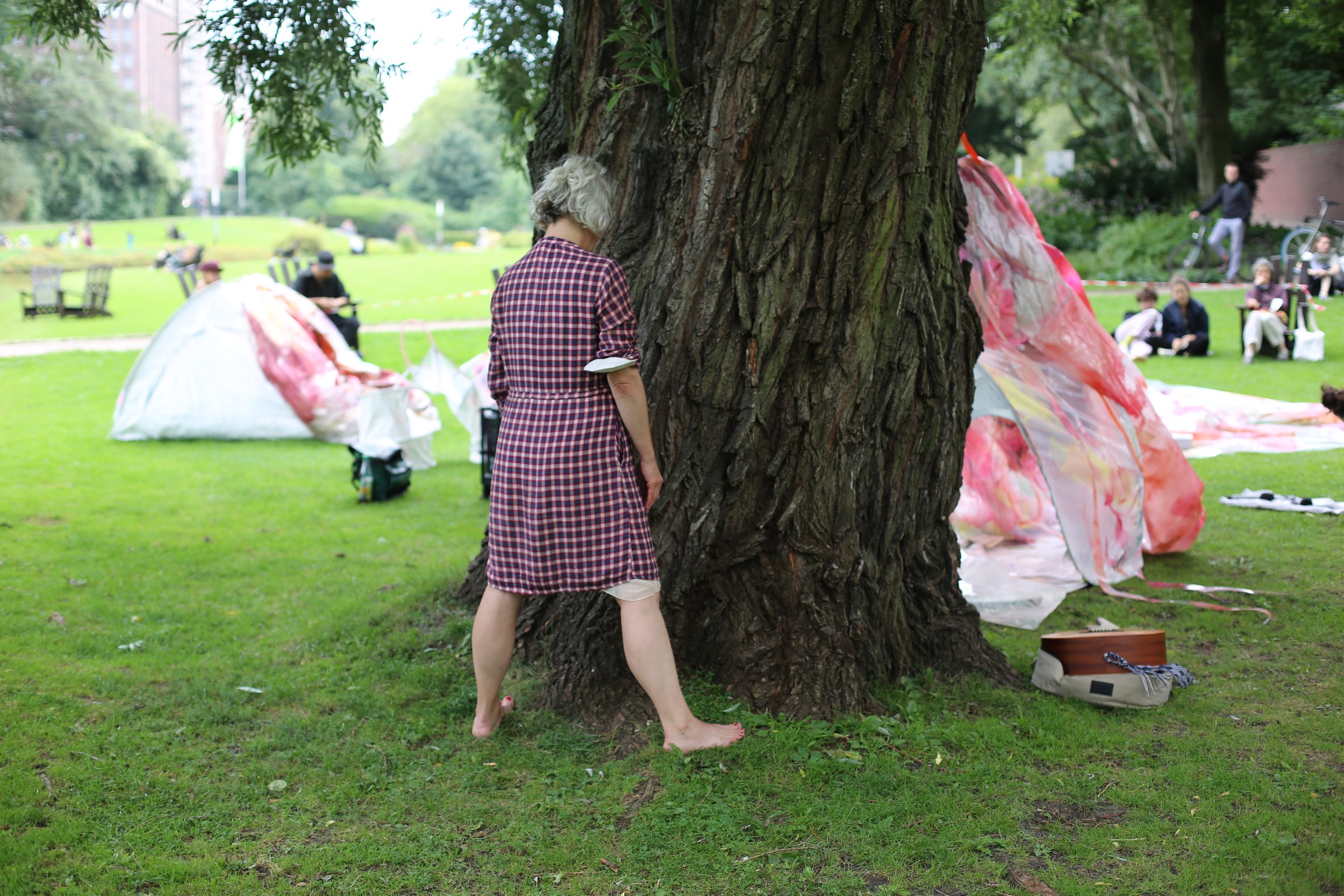
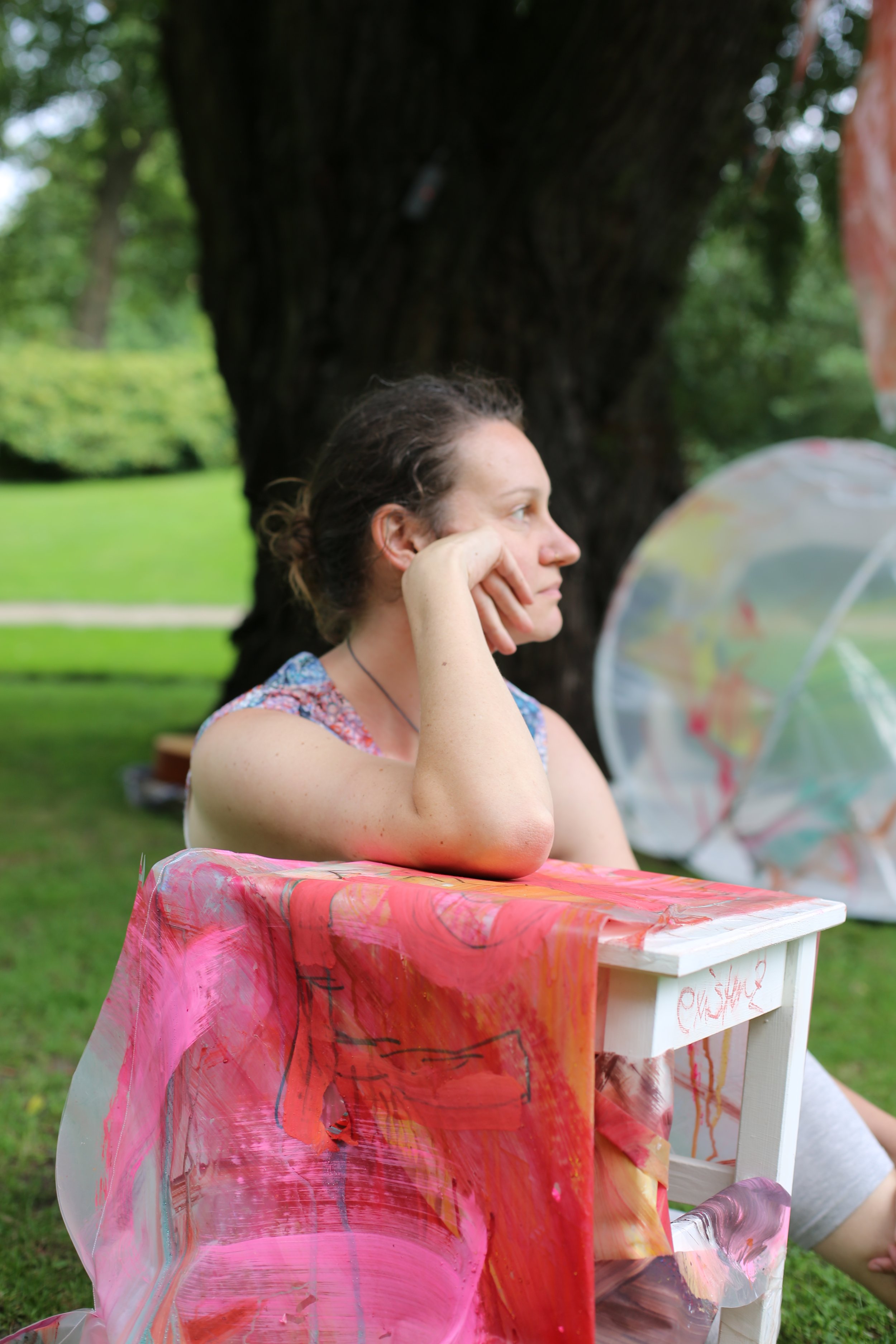
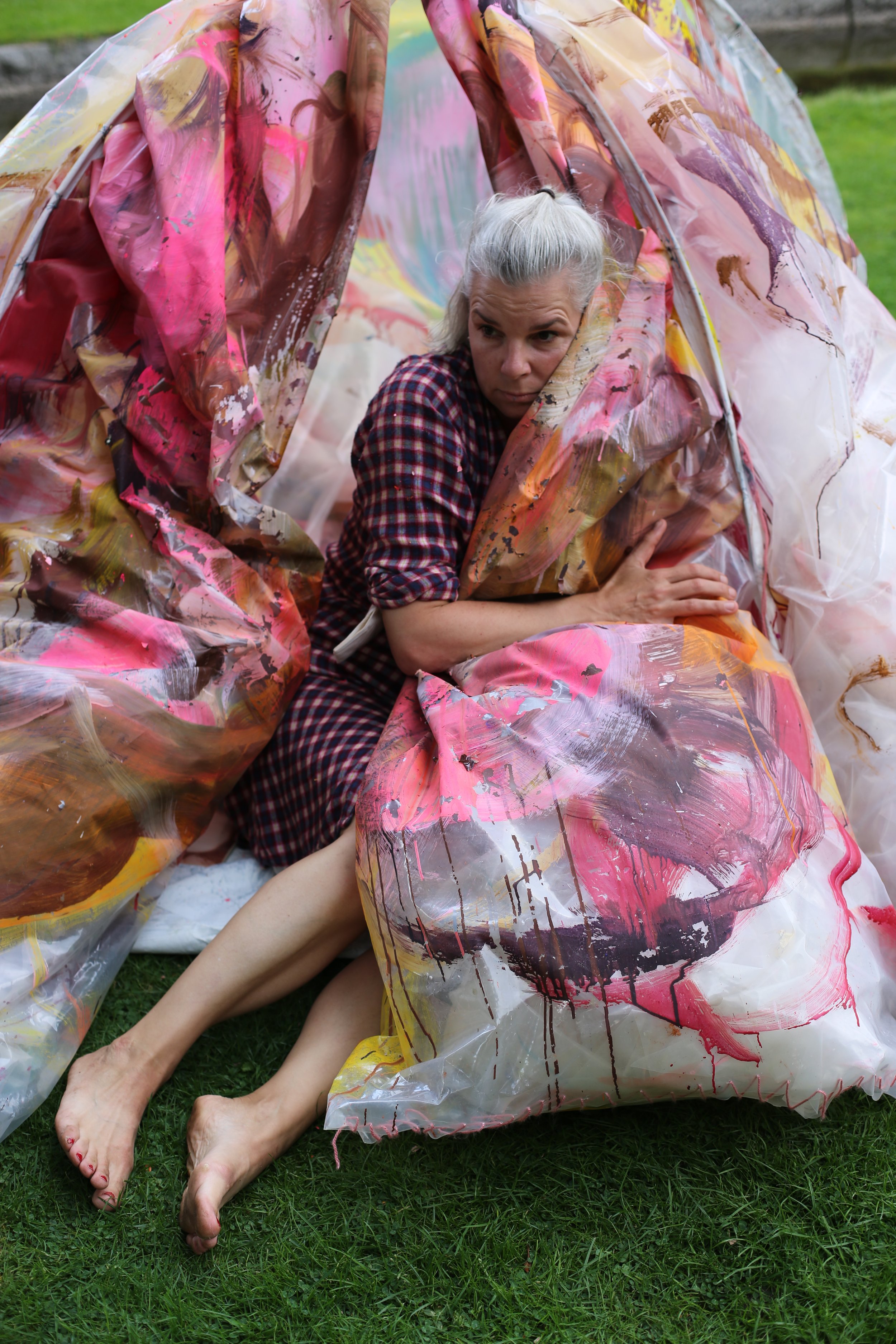
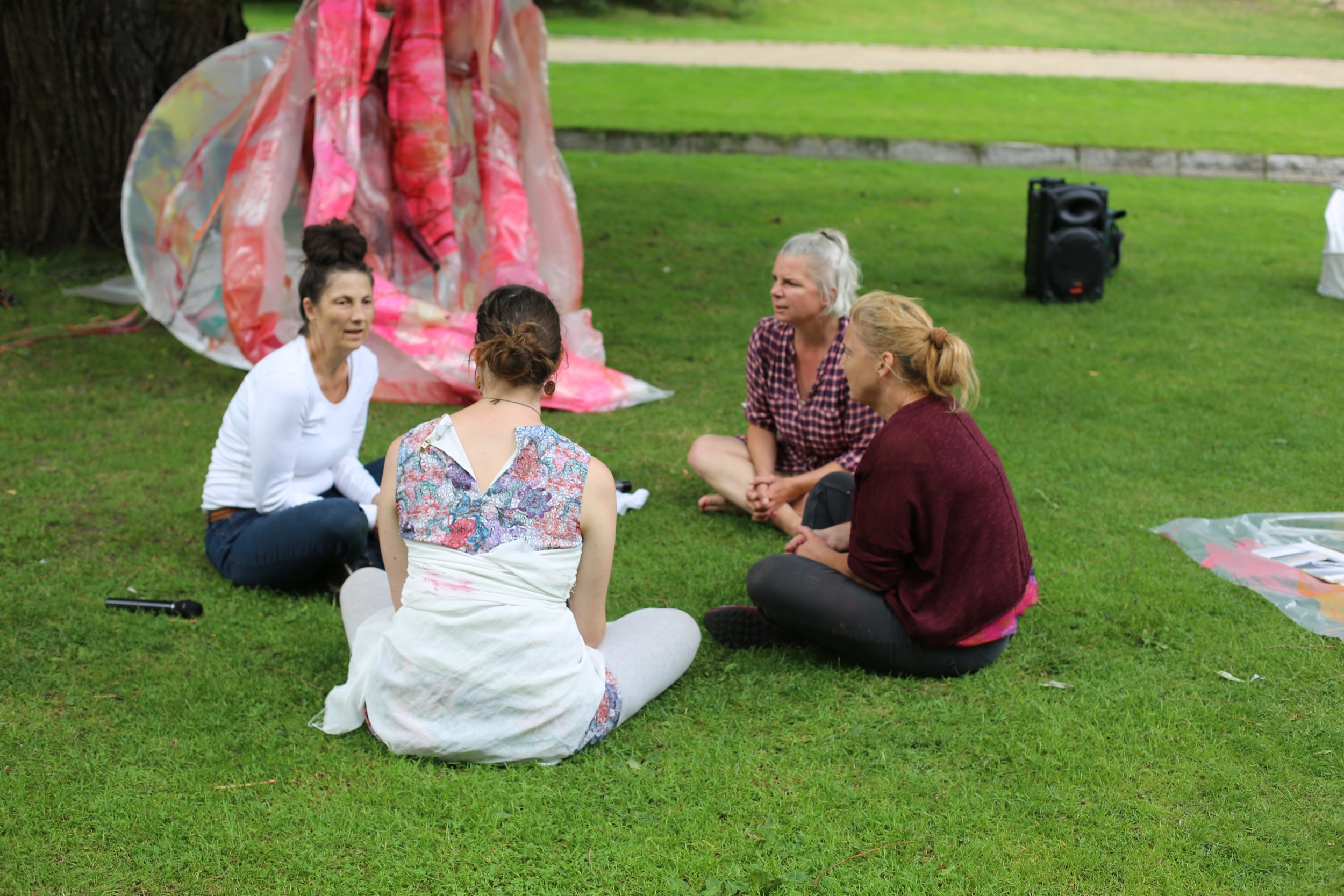
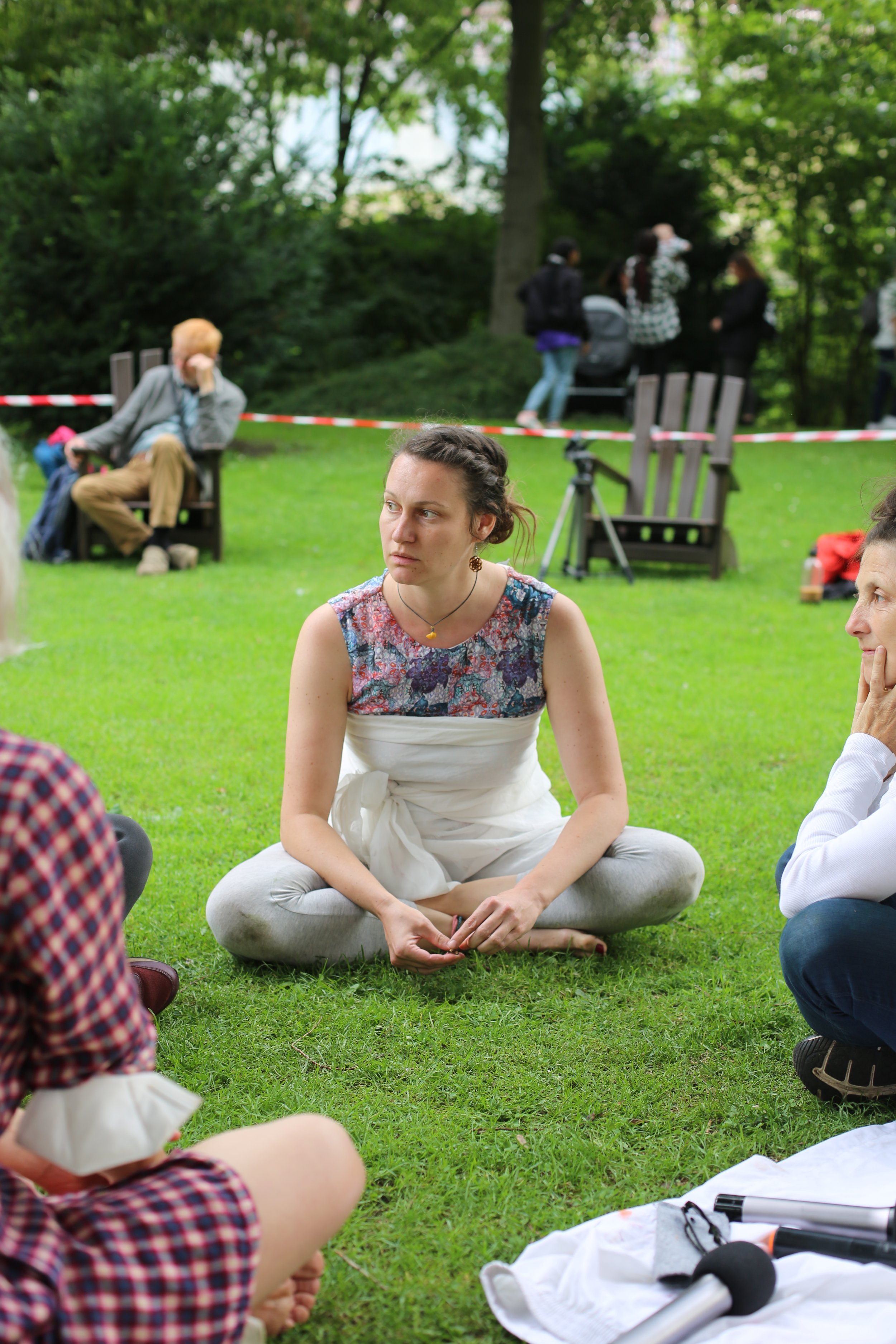
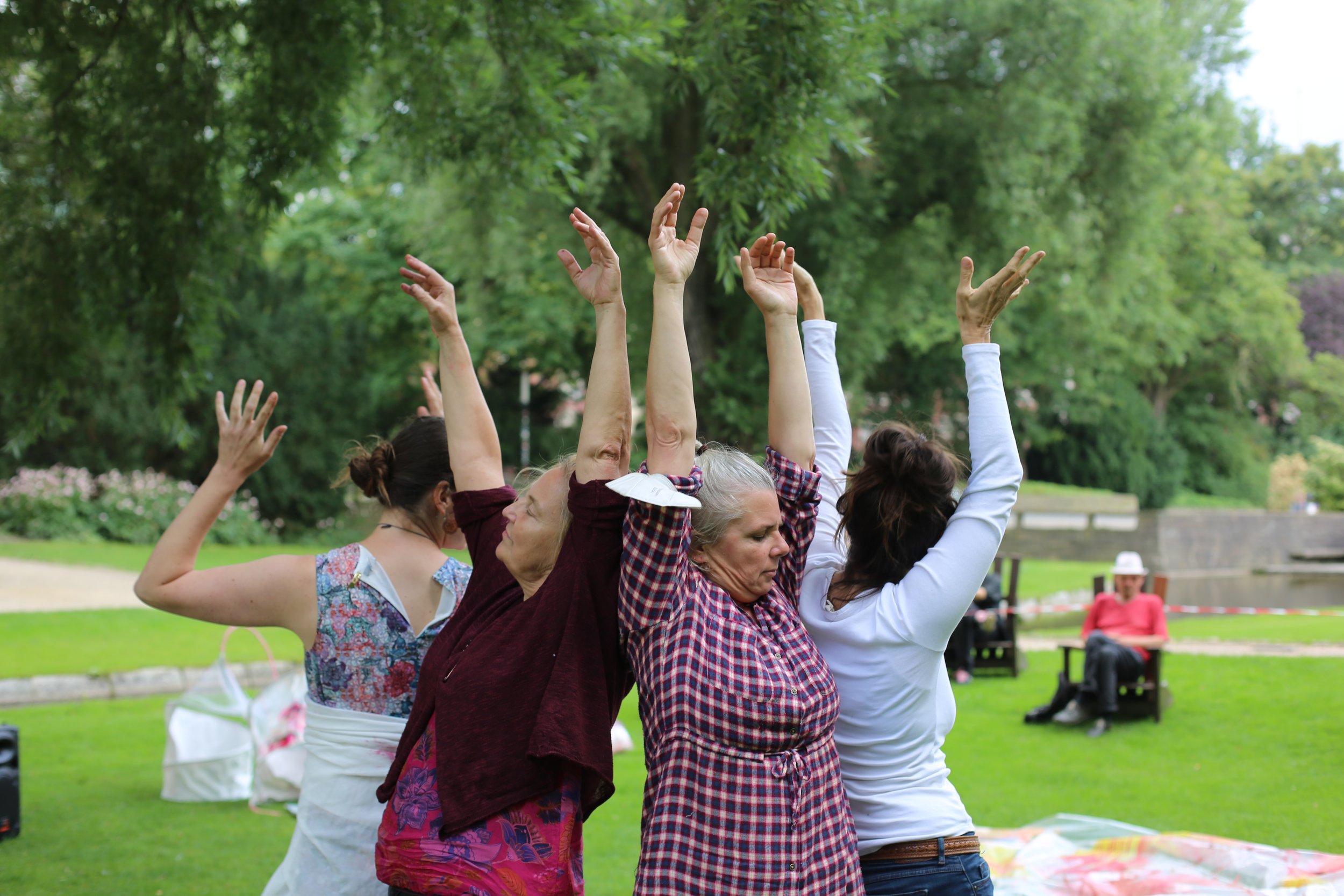
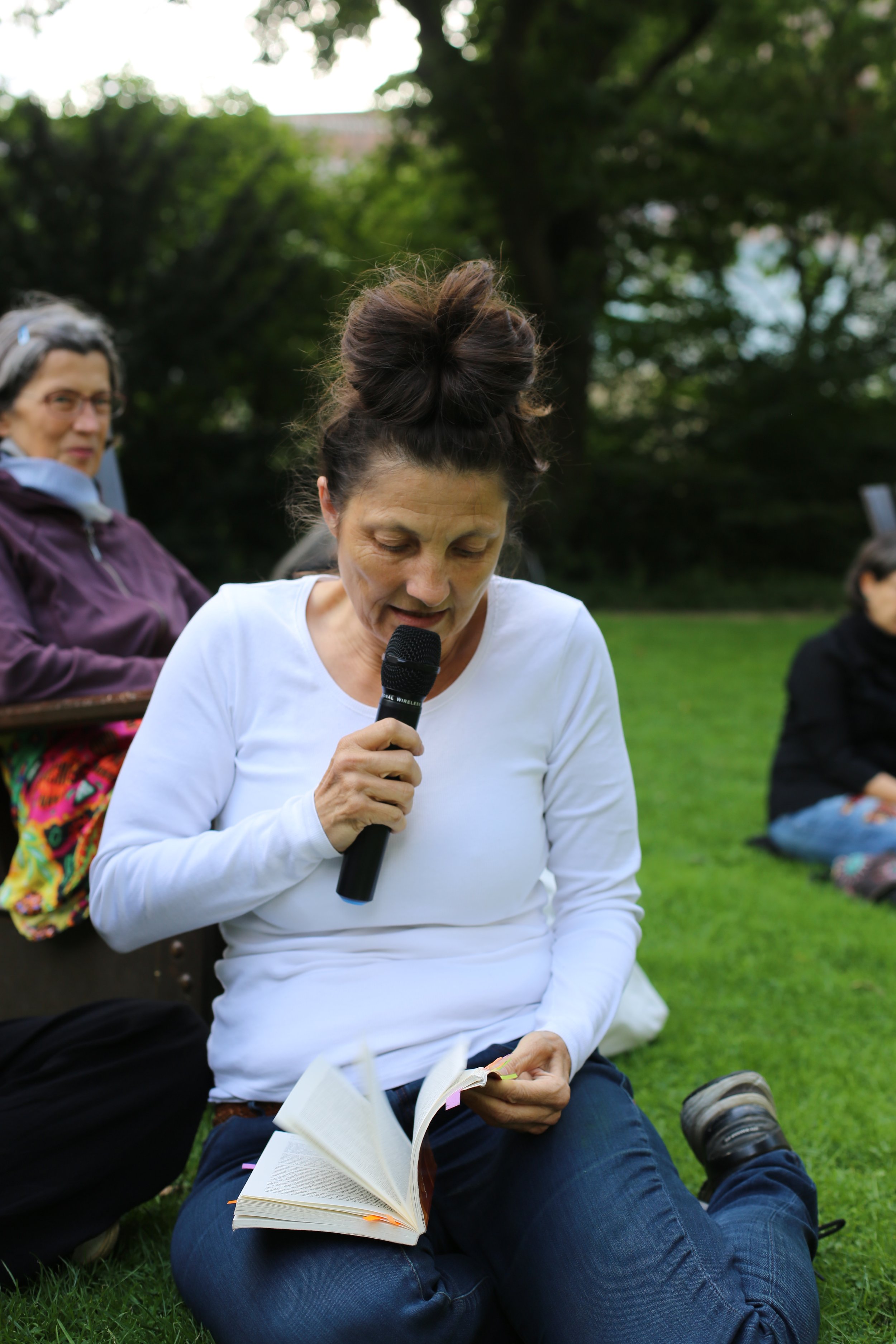
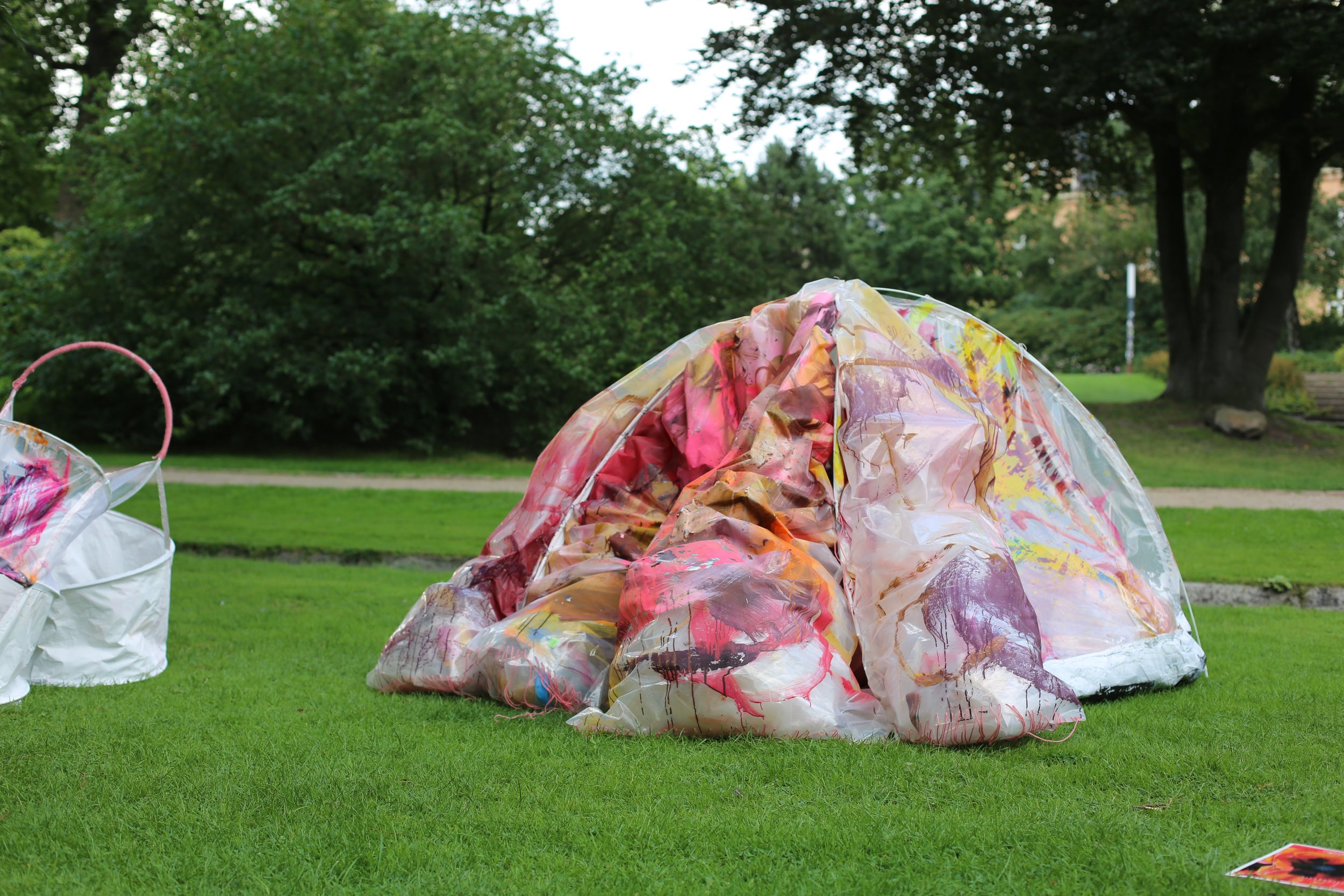
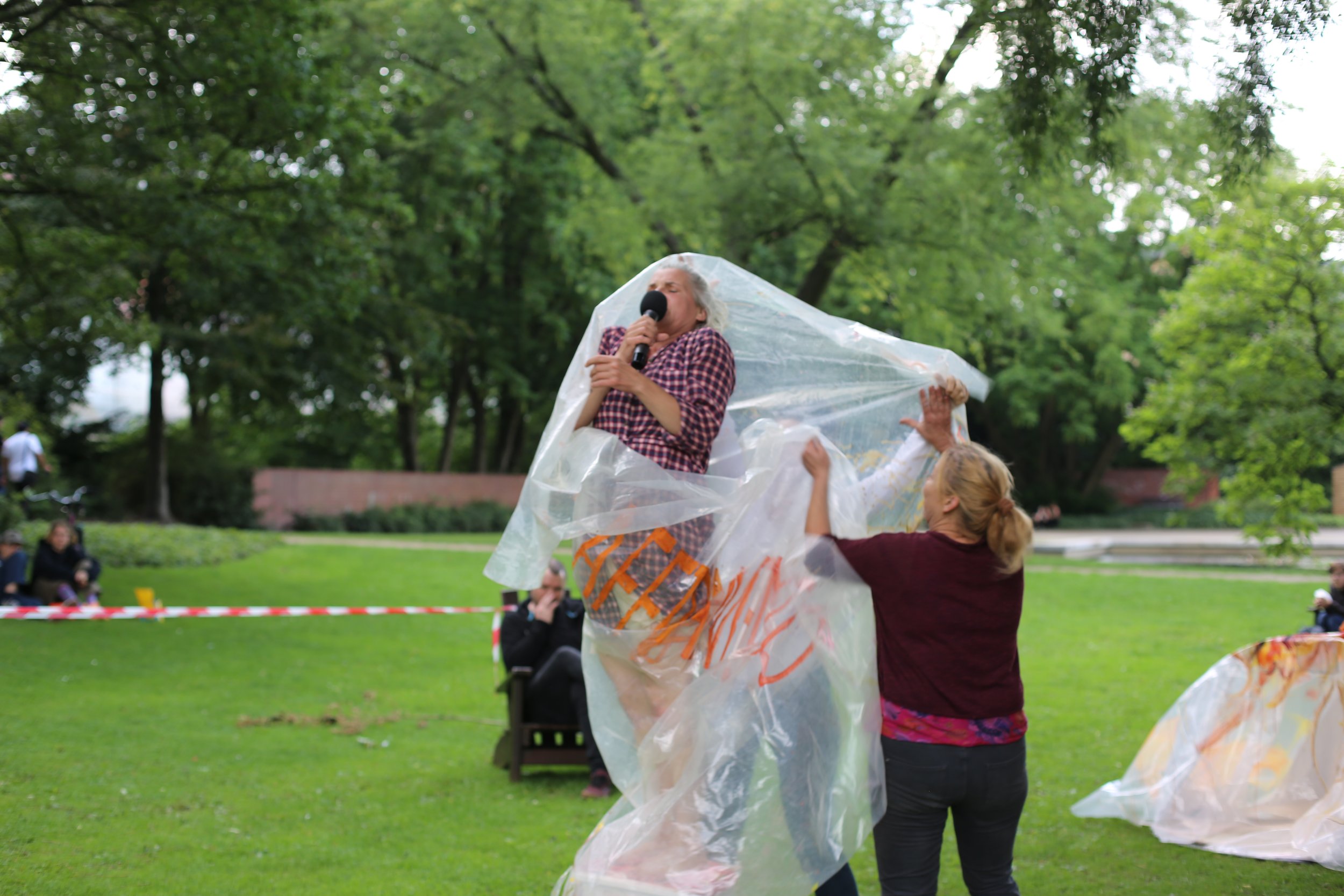

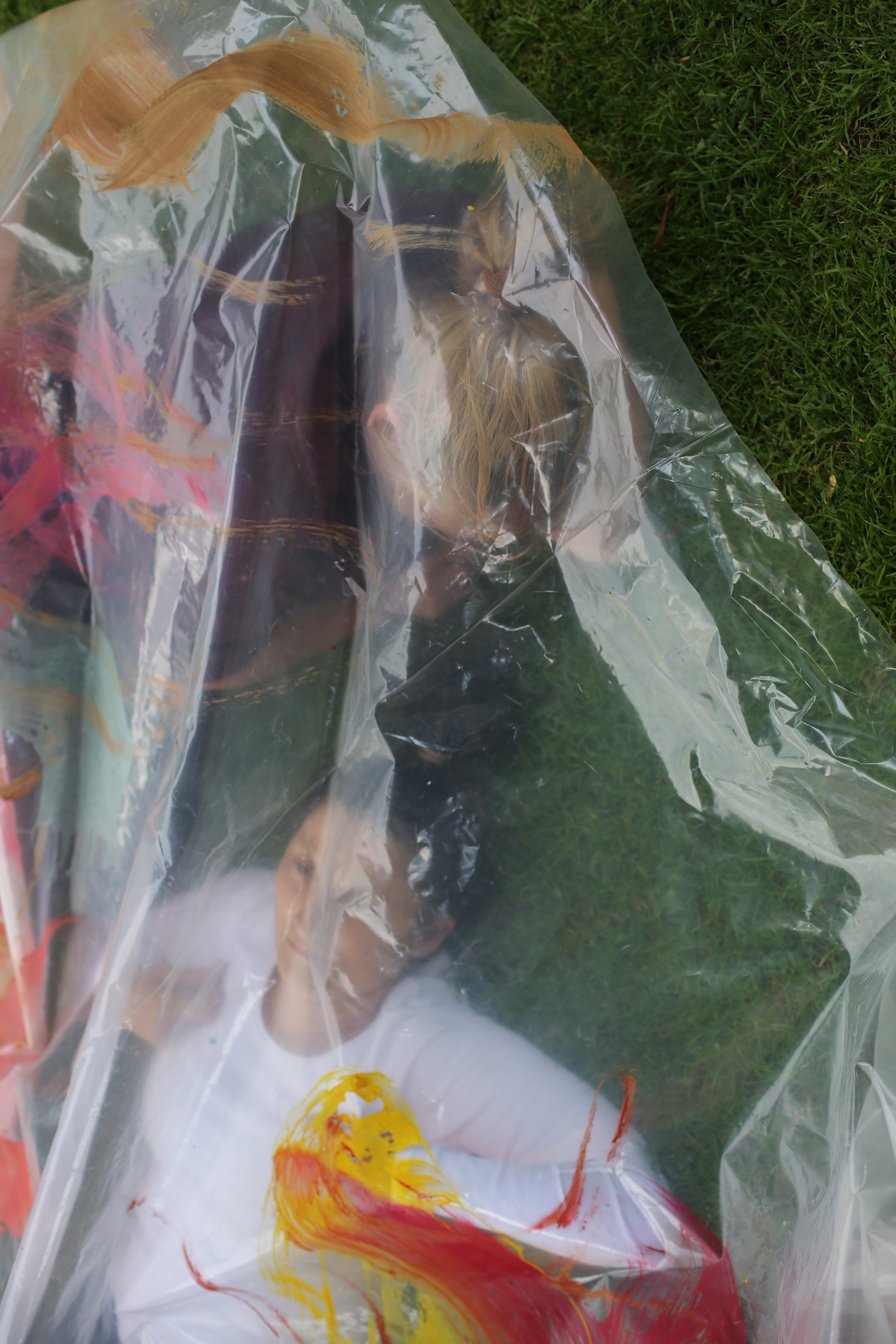
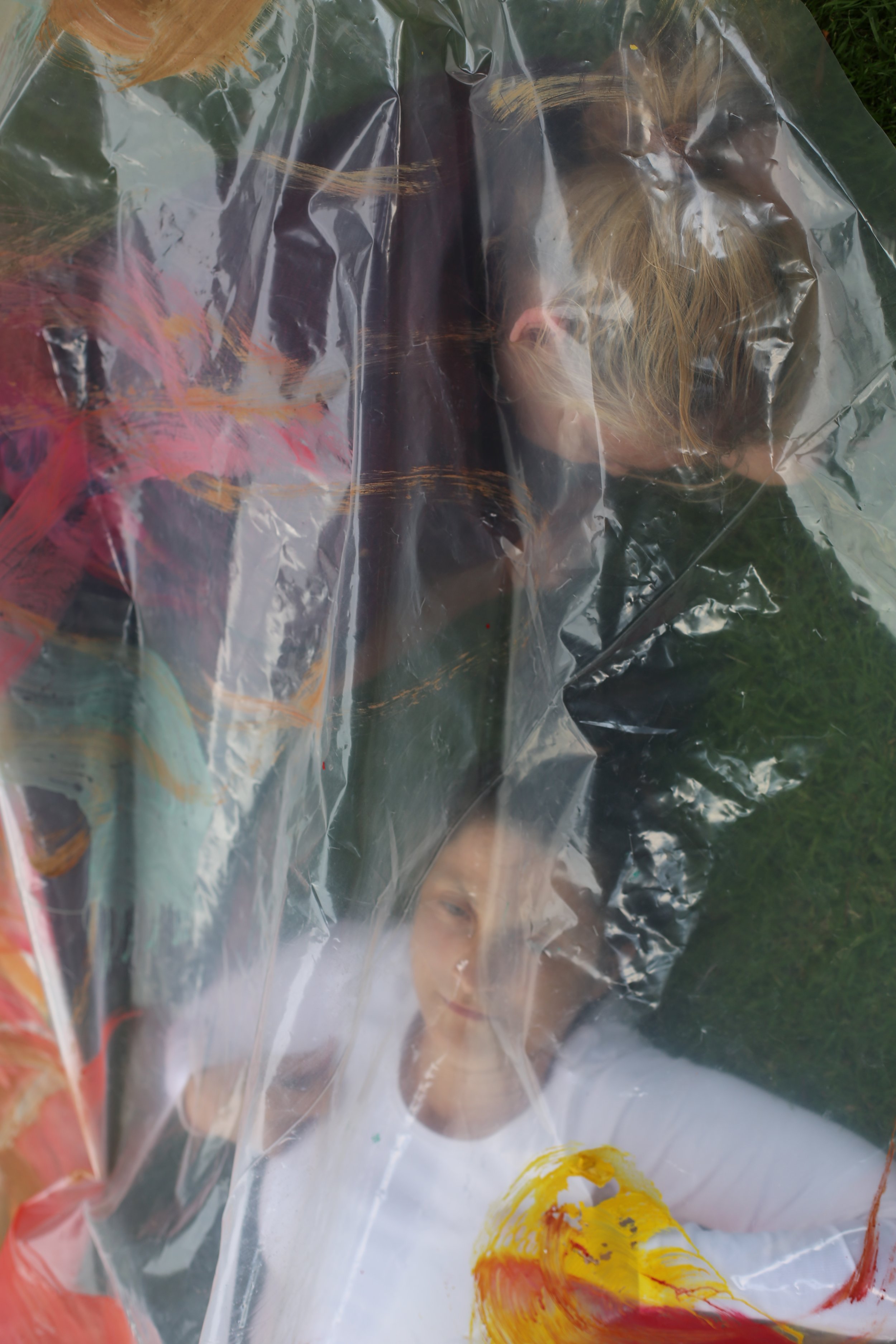
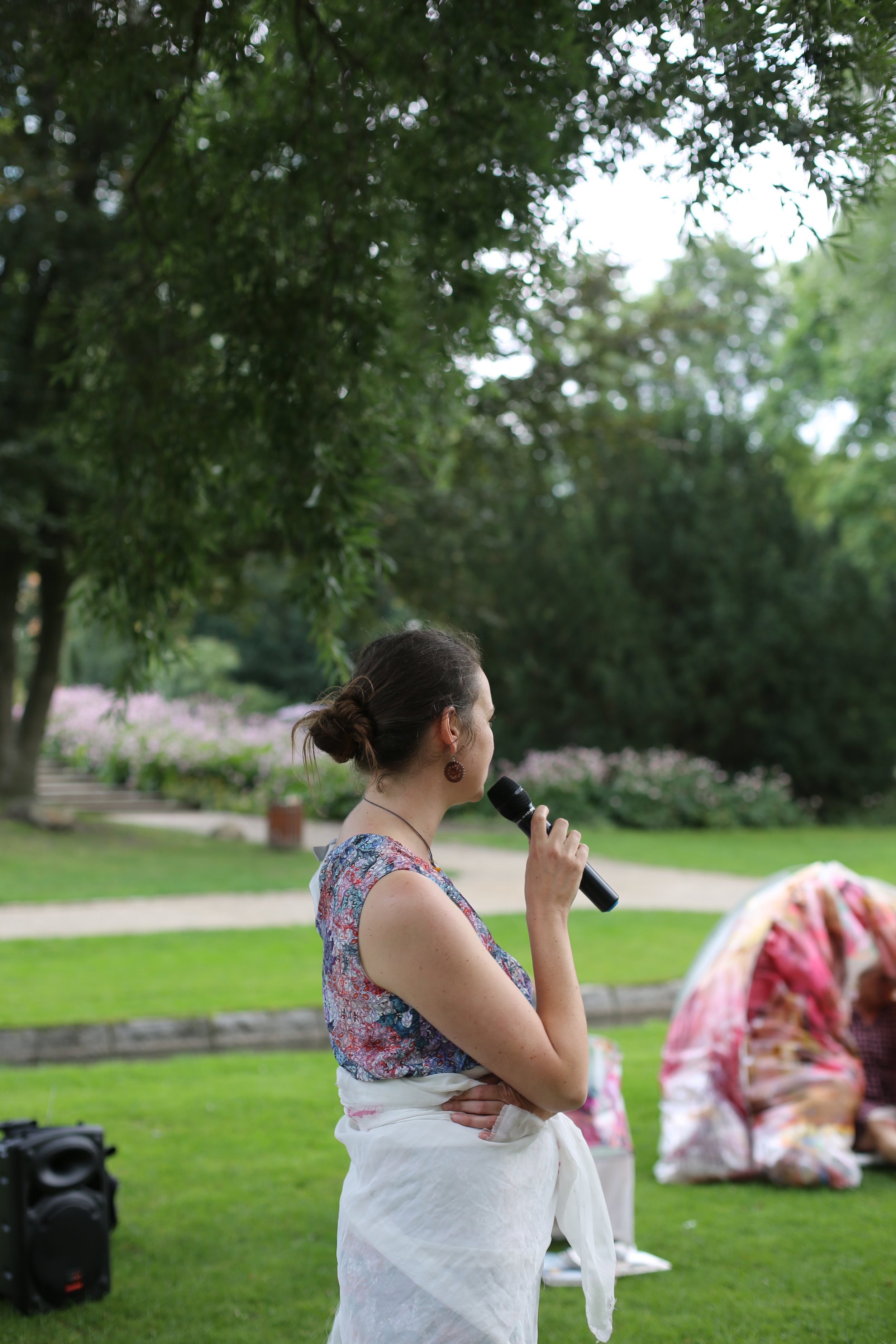
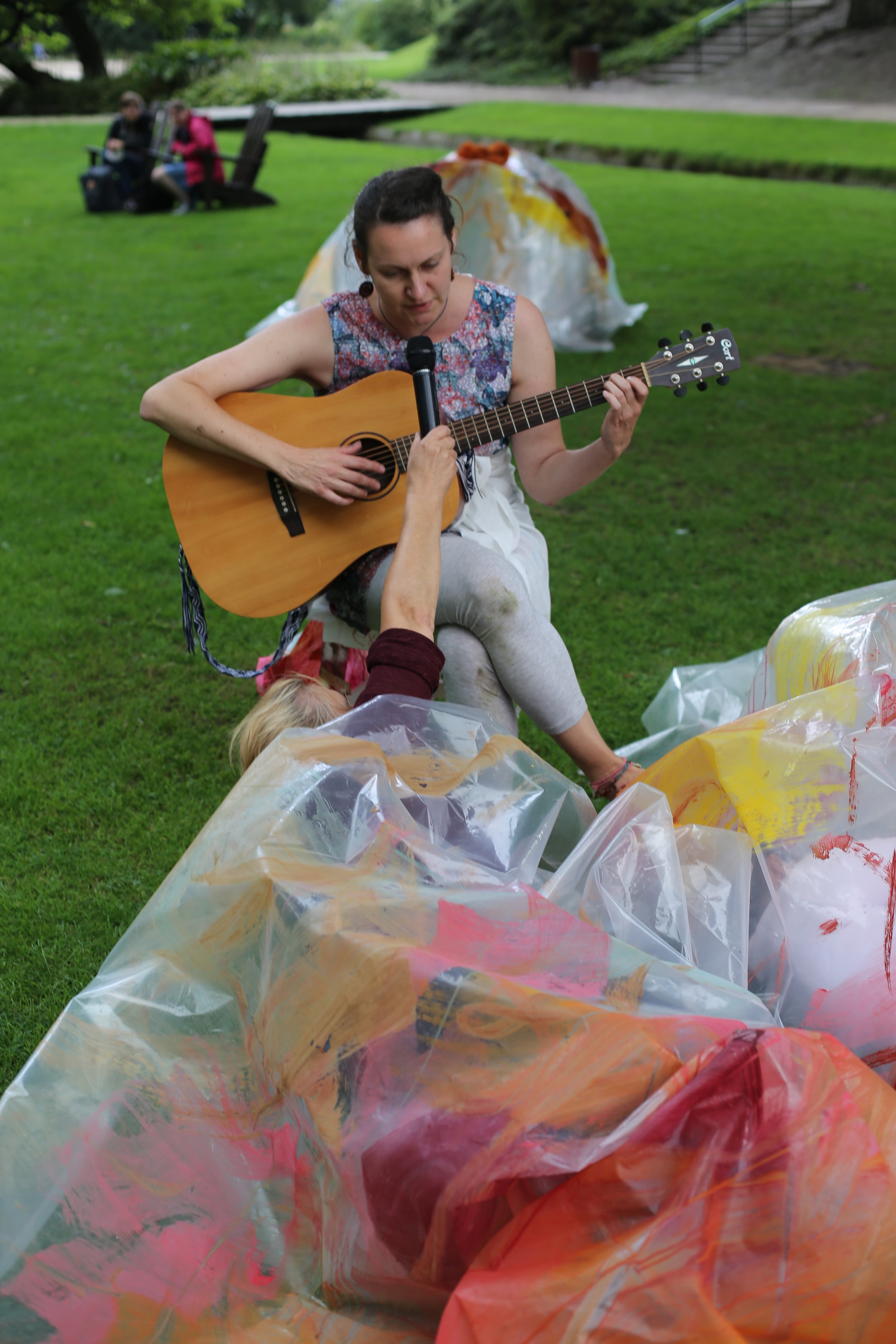
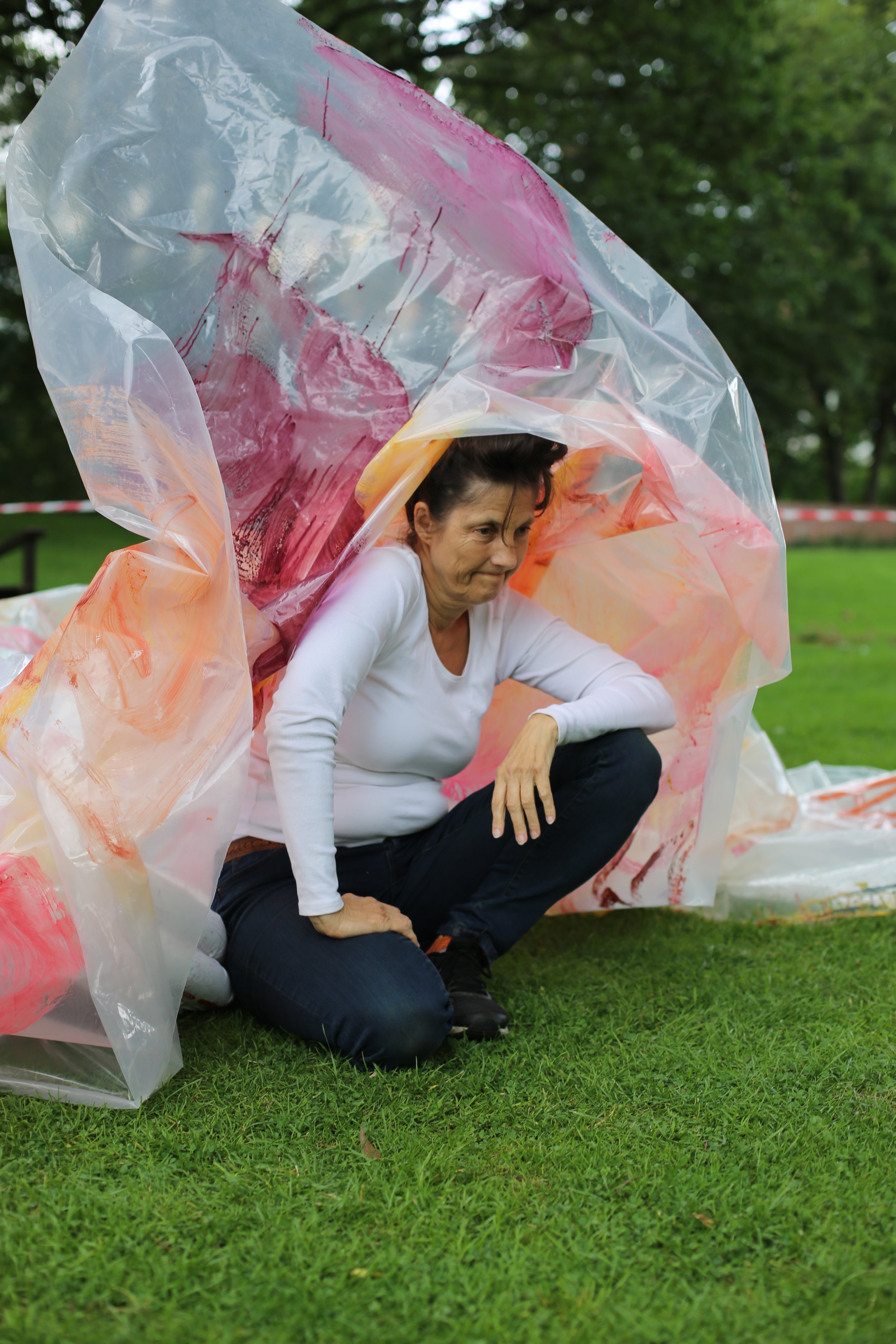
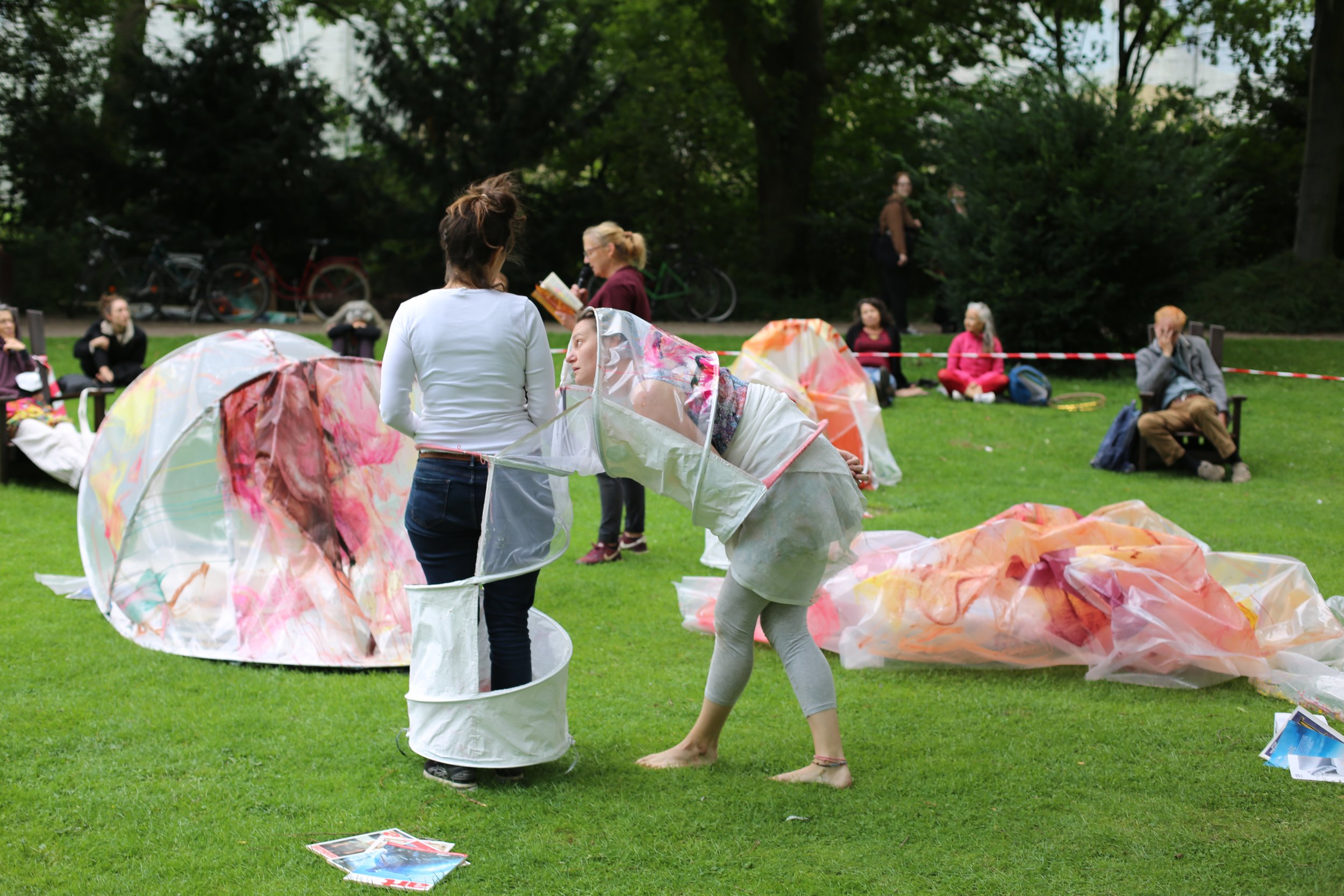
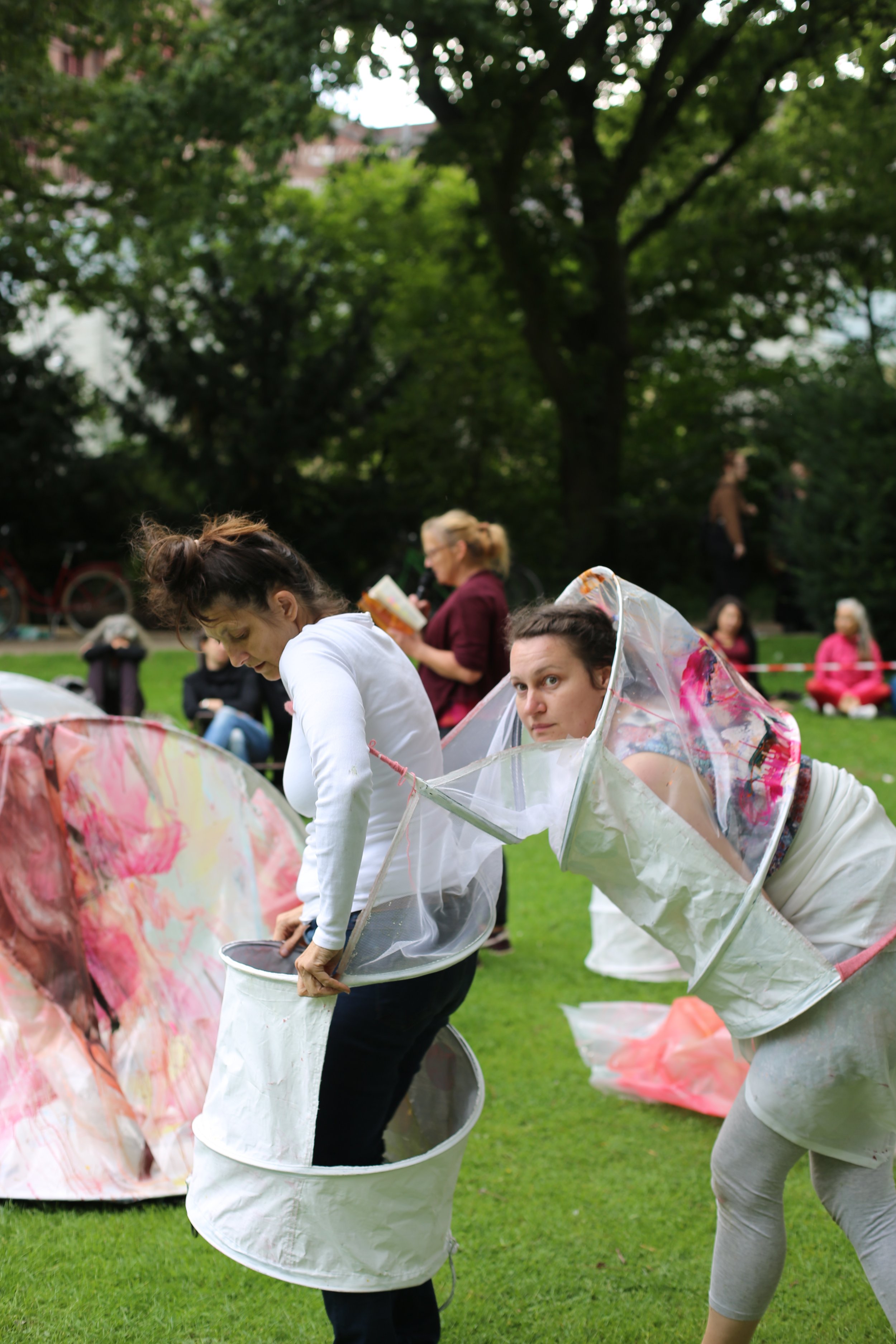
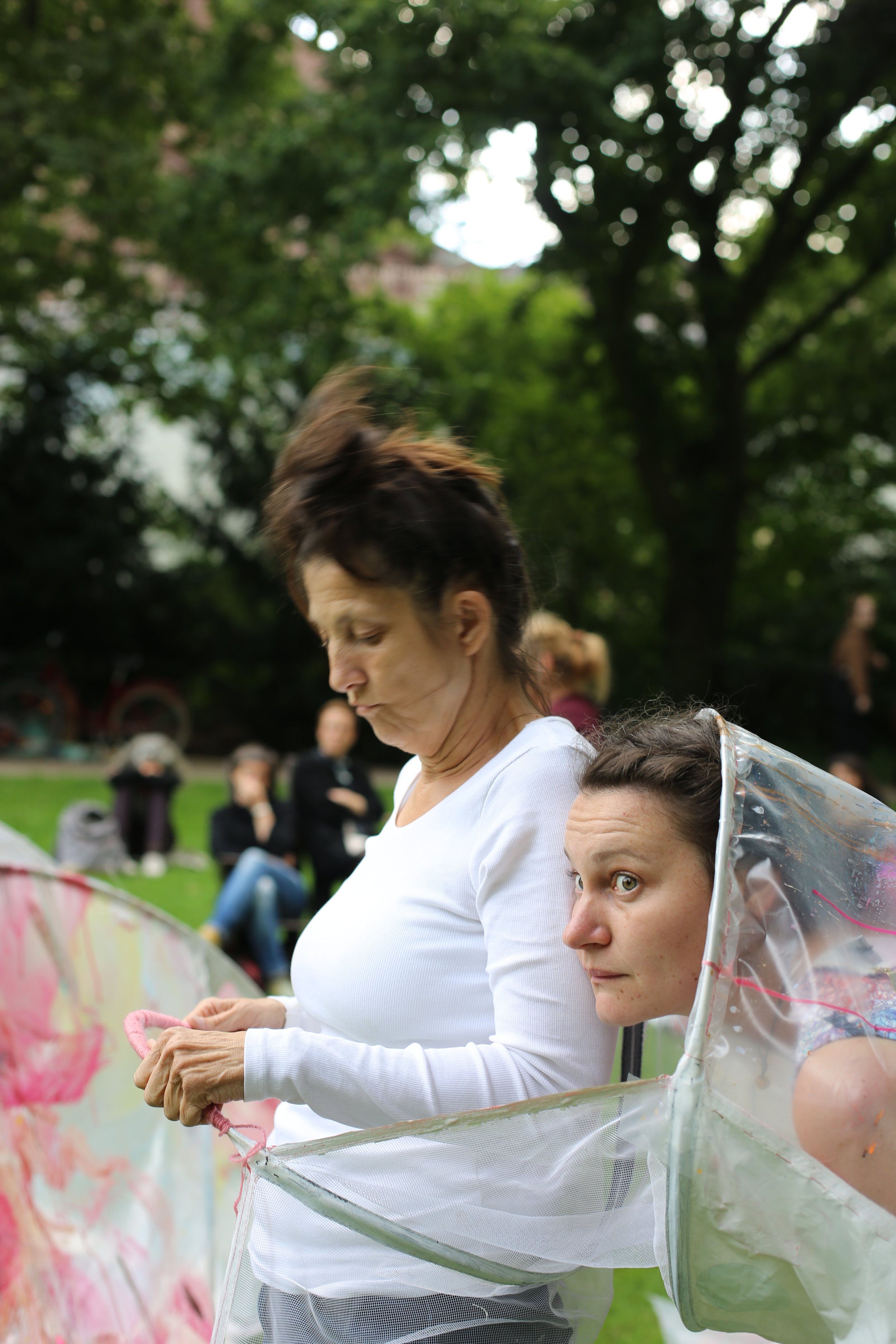
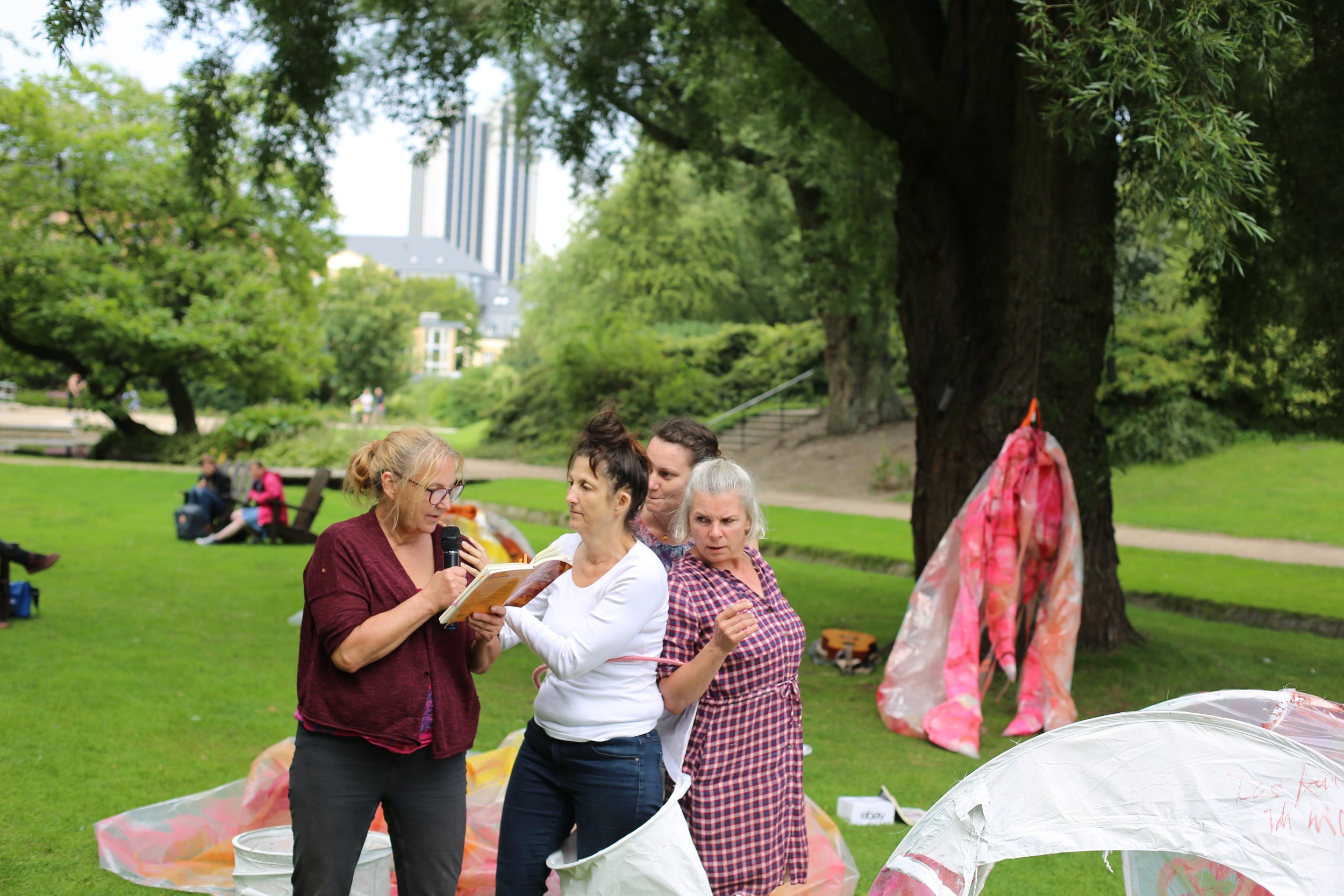
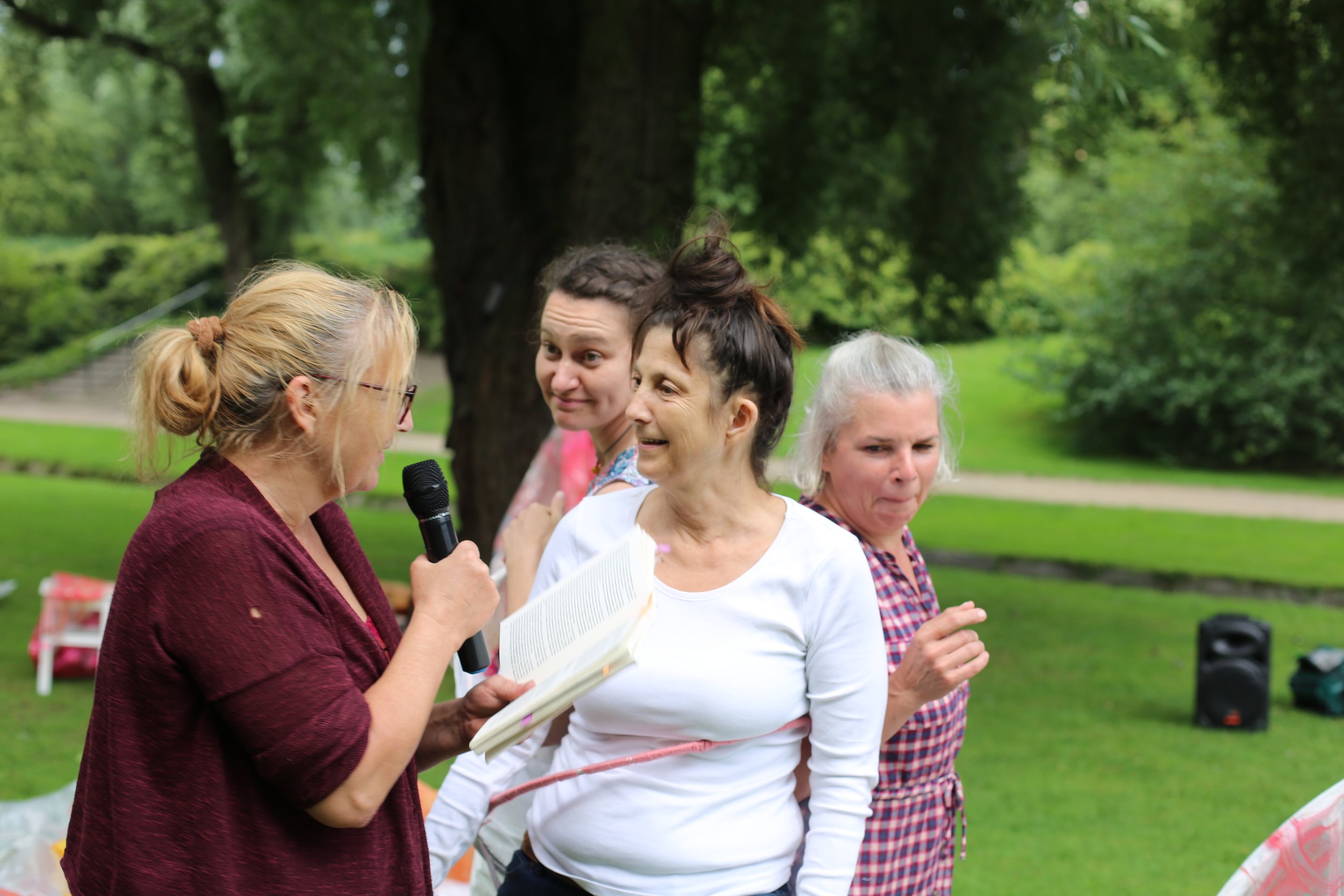
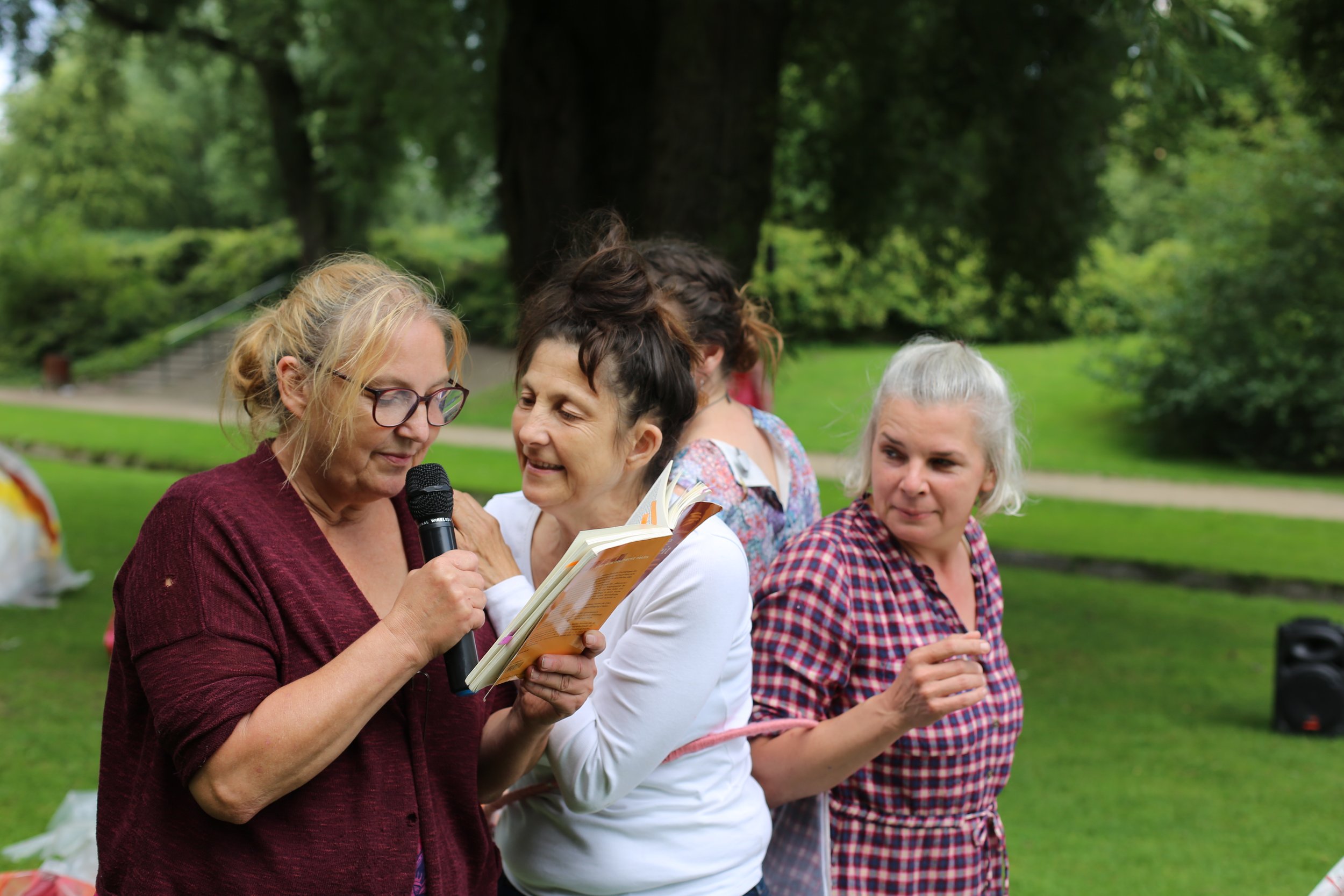
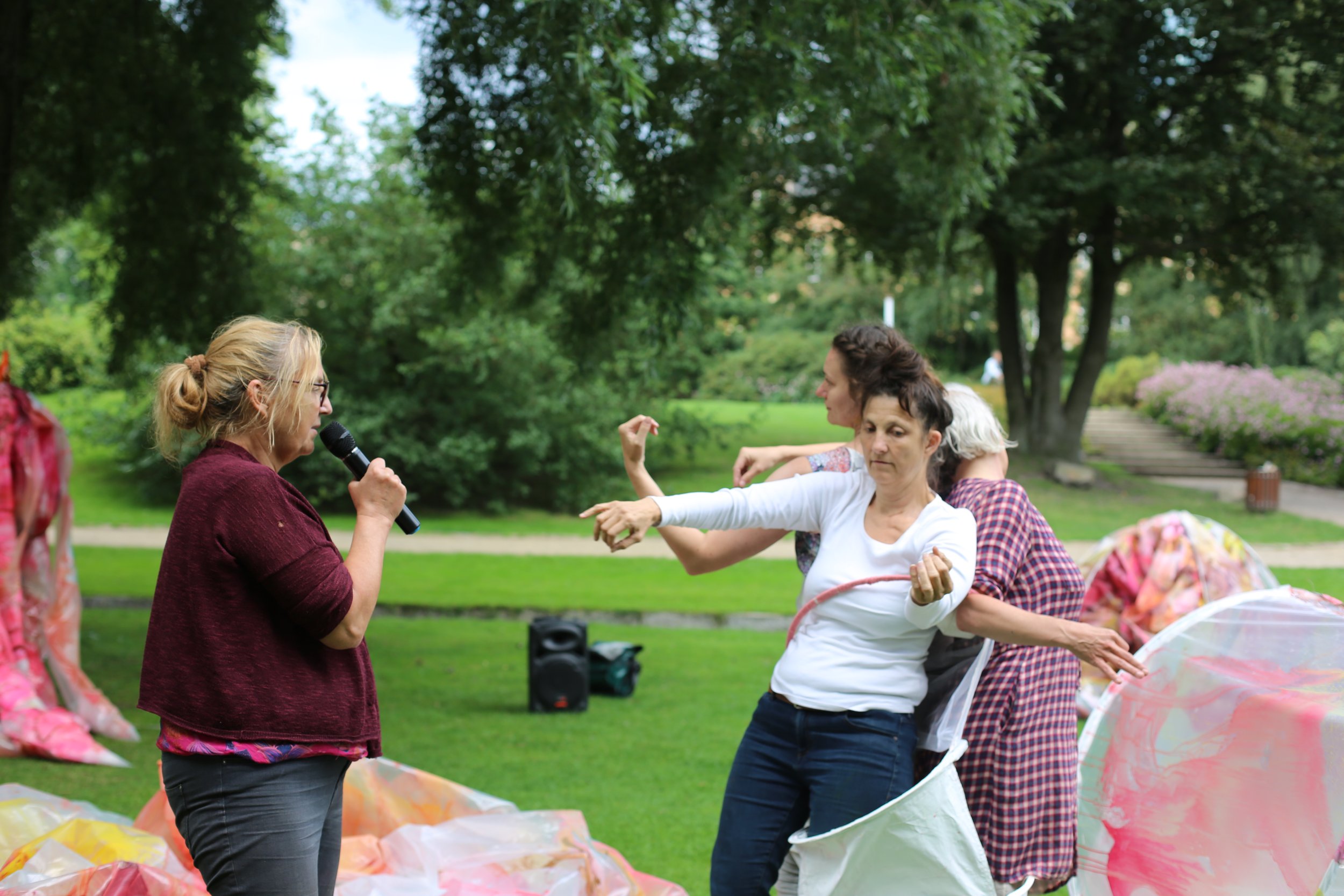
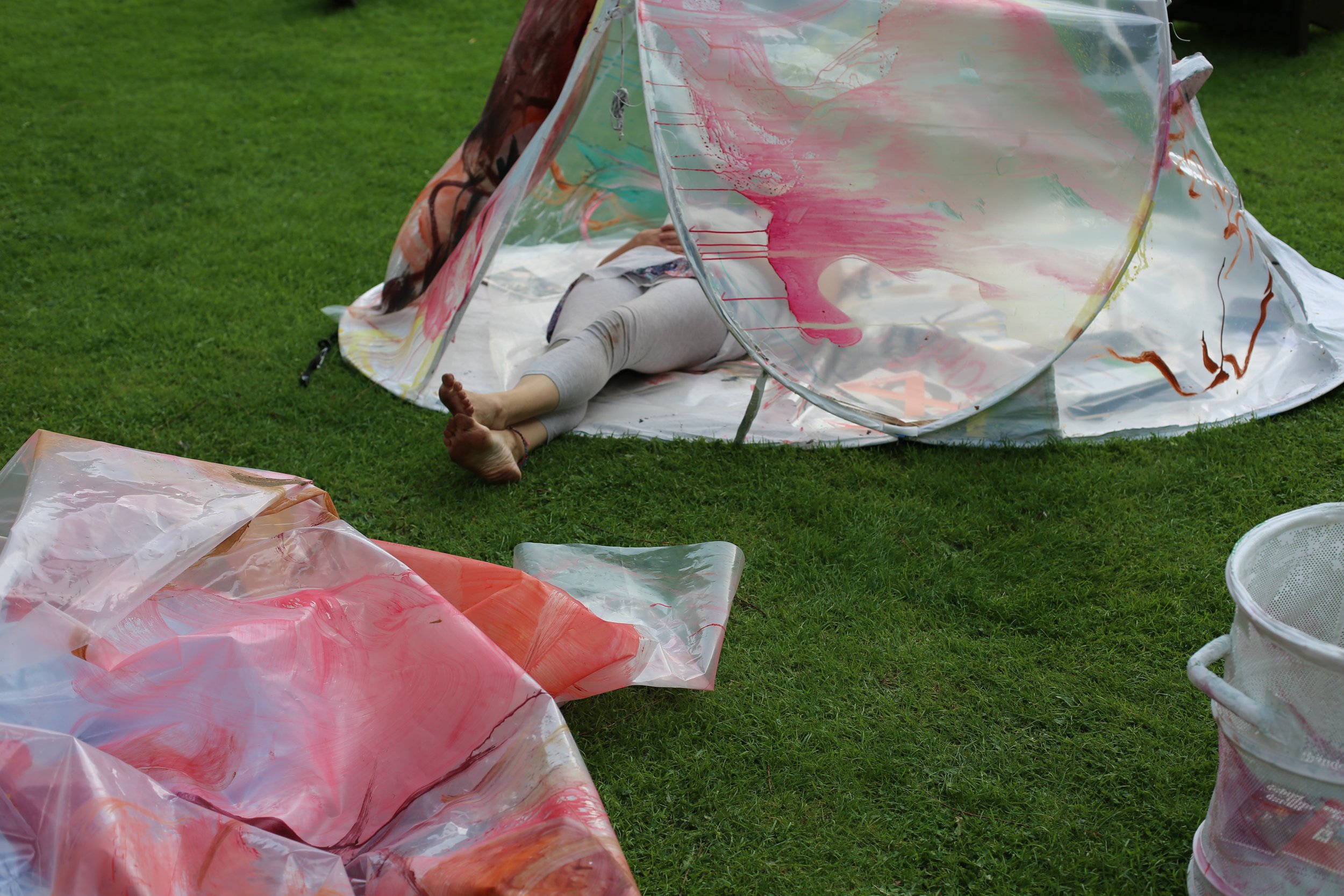
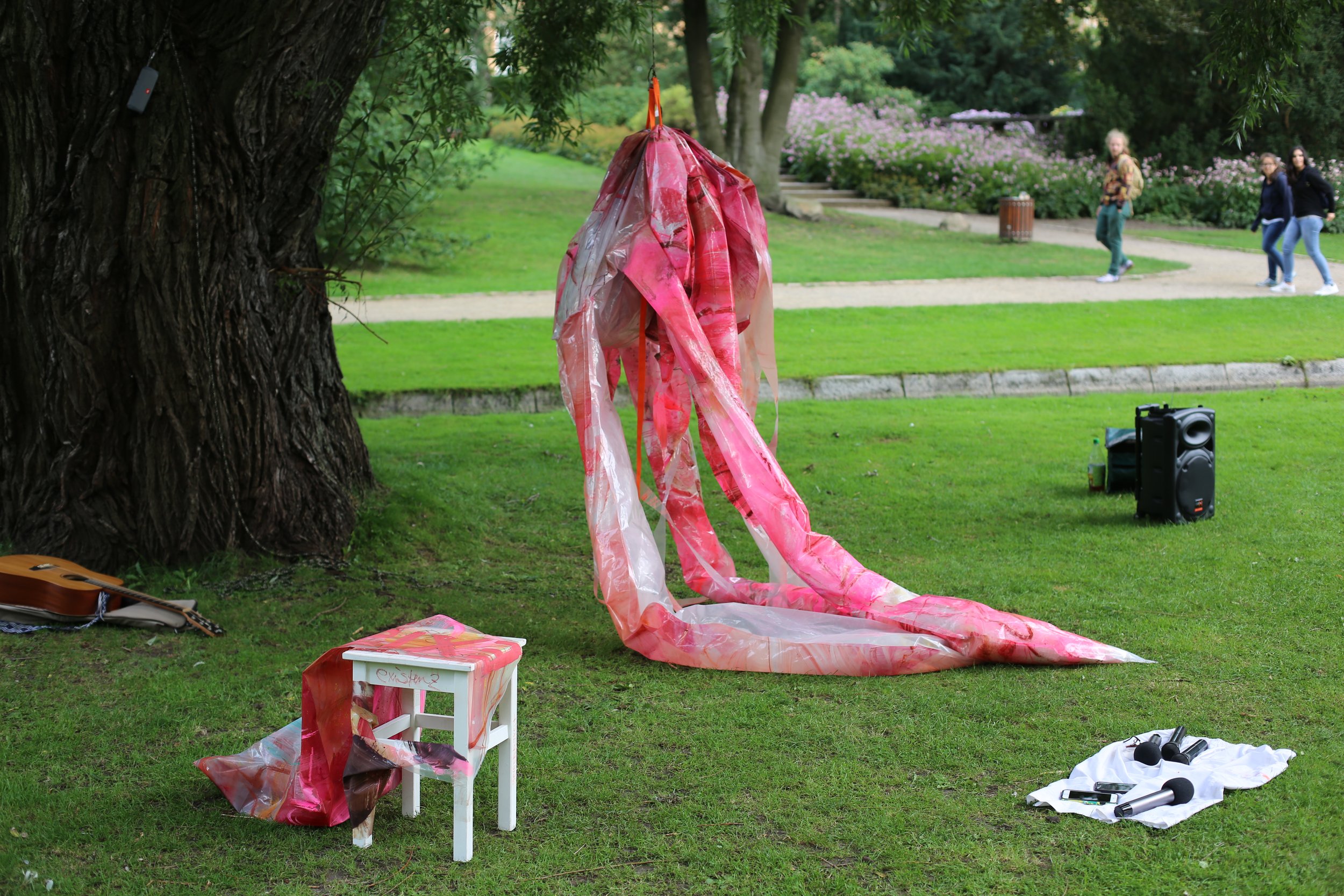
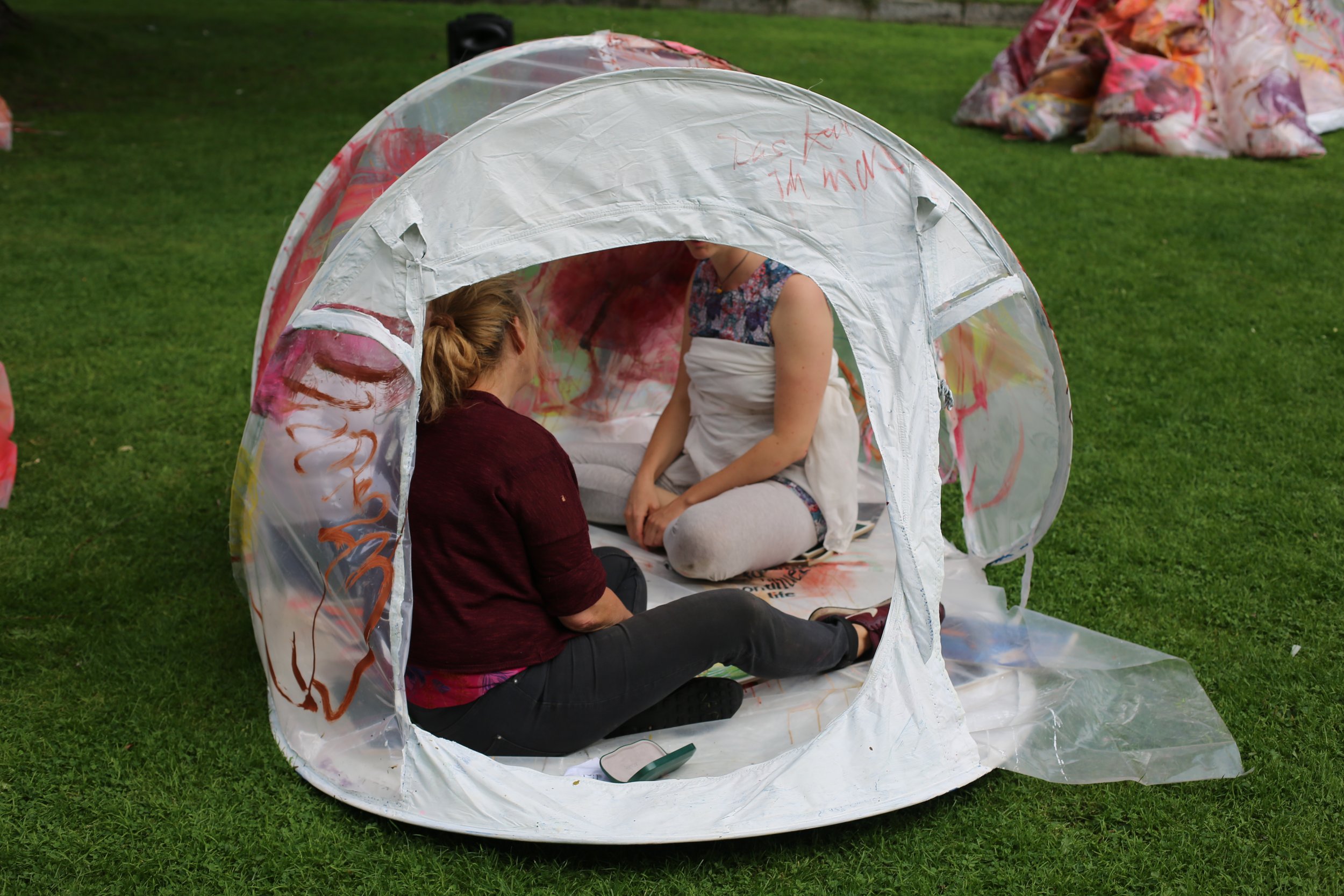
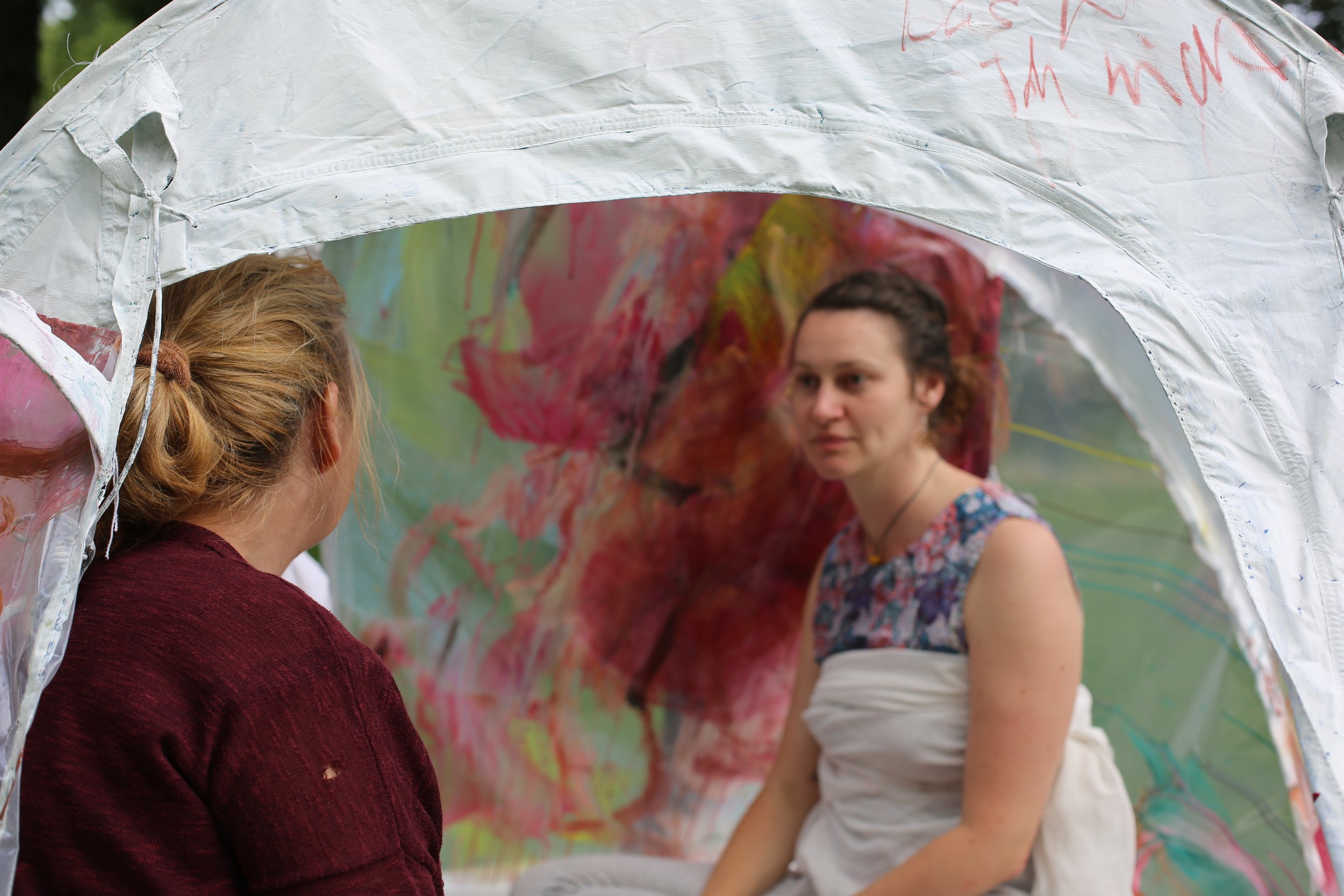
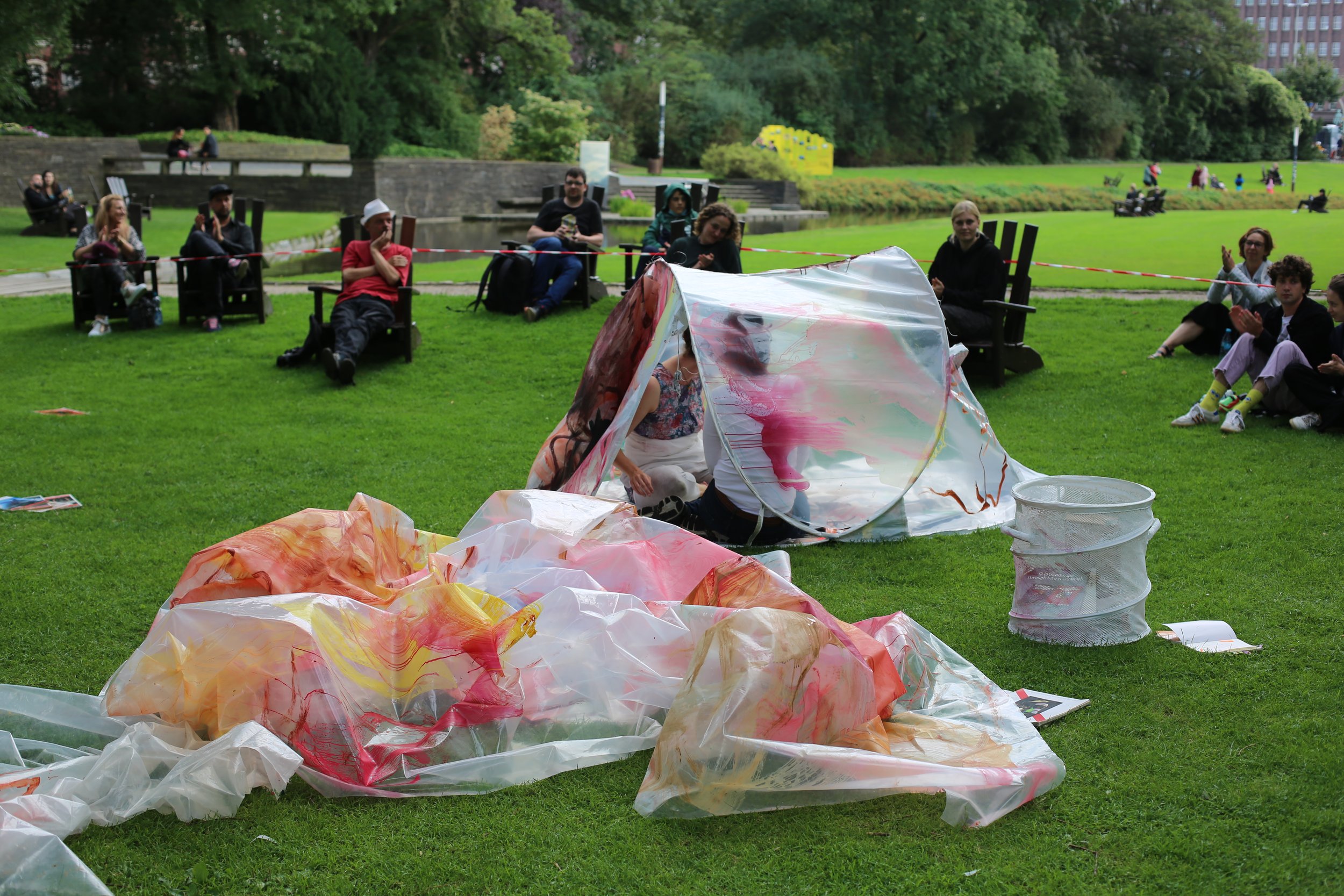
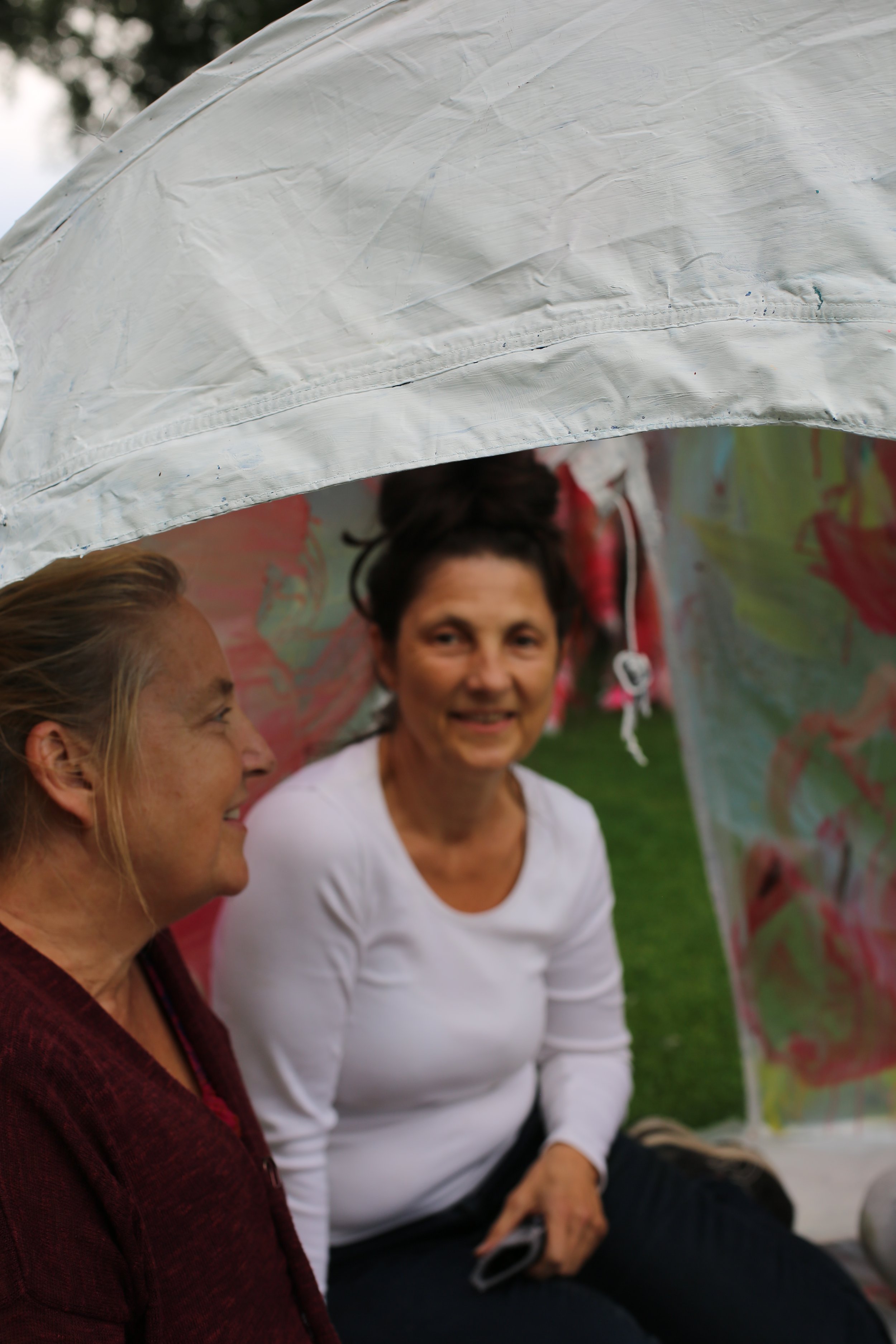
While it was super interesting, fun and fascinating to look into the beginnings of the (European) women’s and feminist movements, and grapple with some of their demands and theses from our current perspective, it was also quite evident that we tried to do too many things in too short a time and without clear enough structures and agreements to guide us through it.
Until the end it was not entirely clear how to combine a philosophical debate and discussion with a post-feminist performance - especially in the unprotected openness of the spot in a park (Kleine Wallanlagen), right next to a pre-trial prison, that we were given as our performance stage.
Given the special circumstances of our location - next to the prison, next to a place where during Nazi times several hundred people were executed, and yet in the middle of a park, we did the best we could and pulled off a performance that changed every time we performed it and yet allowed us to go deeper into the topics and seed some impulses for reflection and discussion in our audience and in passers-byers.
One of my favourite moments of the week was shortly after our second performance, as a few of us stayed in the park to enjoy the still warm summer night for a little while. Because of the nature of the pre-trial prison where inmates are hardly allowed to communicate with their loved ones through phone or visits, every evening these relatives and friends gather outside the walls and shout their messages of hope and perseverance to the people on the inside.
On this evening a group of young people stood quite close to us, a bit away from the prison walls, where they were able to see their friend behind his window on the top floor of the prison building. Despite the distance they were shouting, gesturing and trying to communicate with a figure in a window - until we decided to give them one of our microphones, turn on our speaker and enable them to have a proper conversation for once.
The gratitude, joy and emotion in the faces of the partner and friends of the inmate were priceless.
